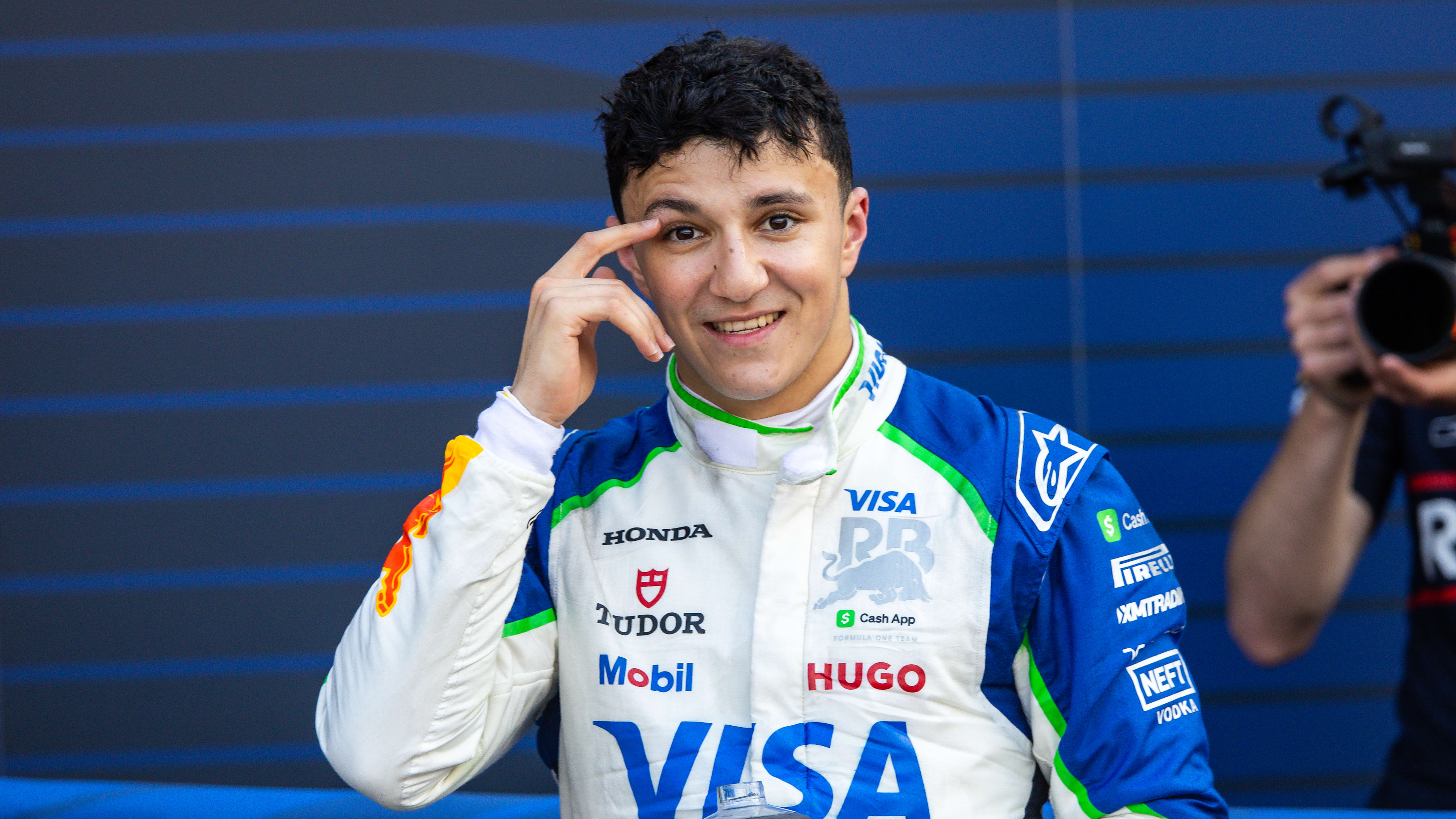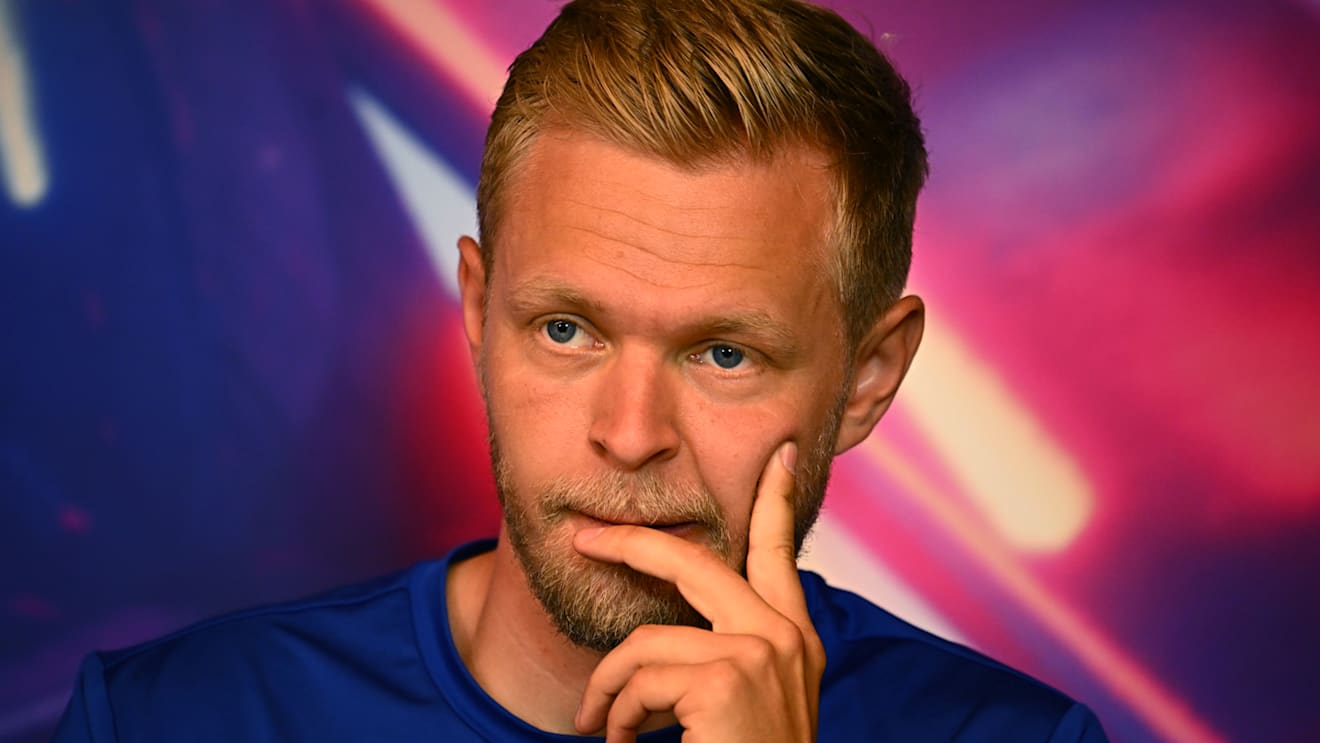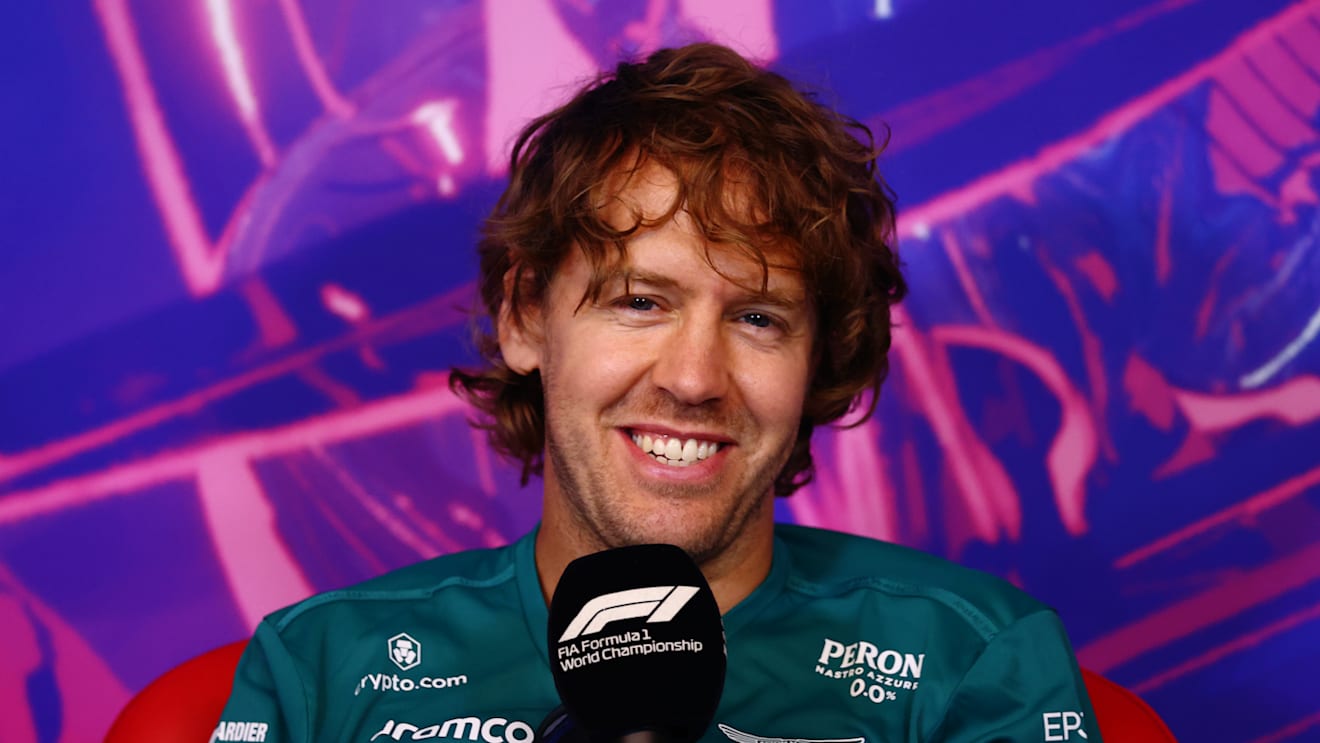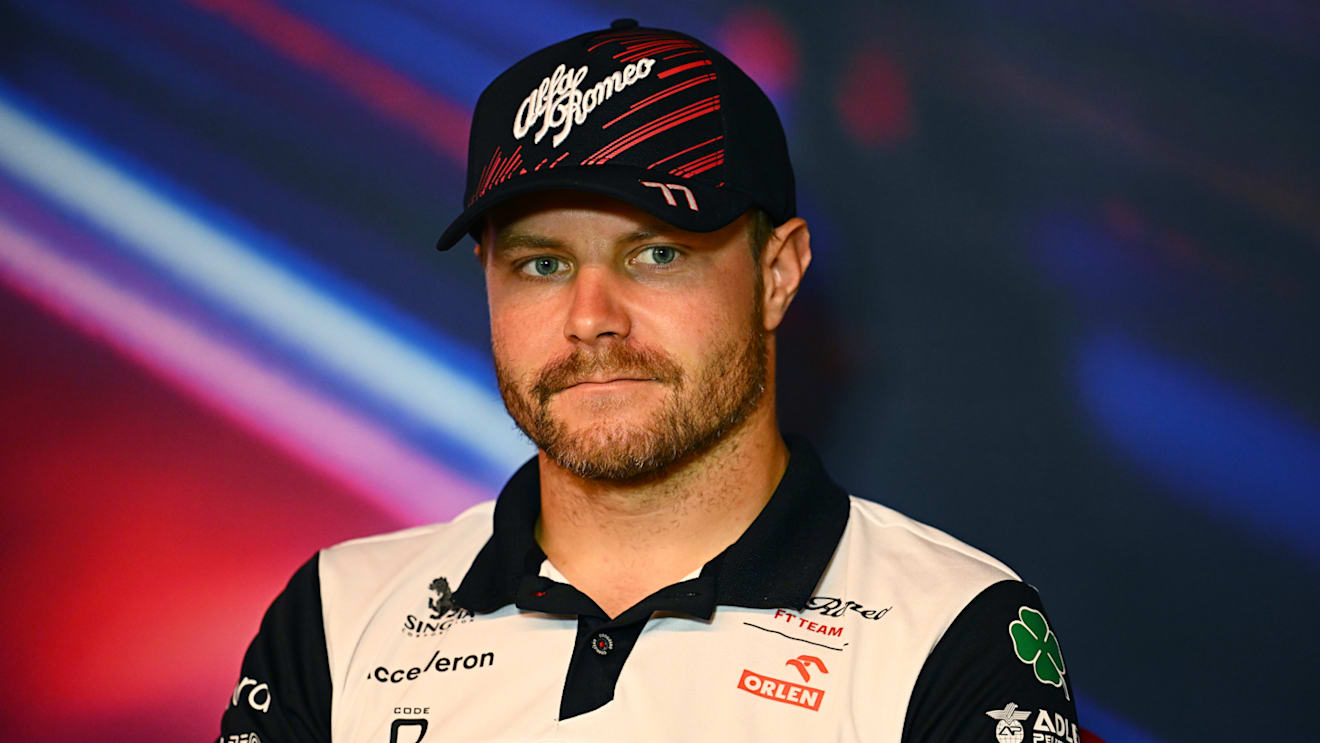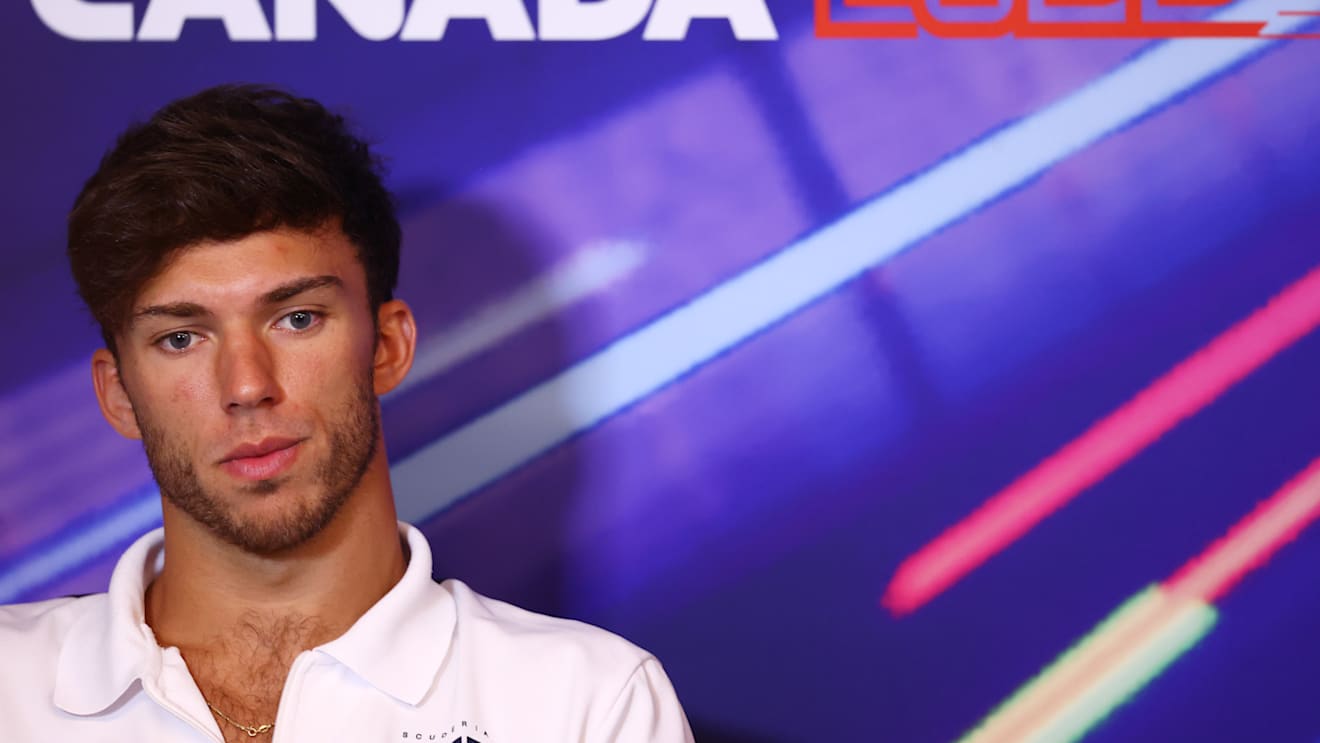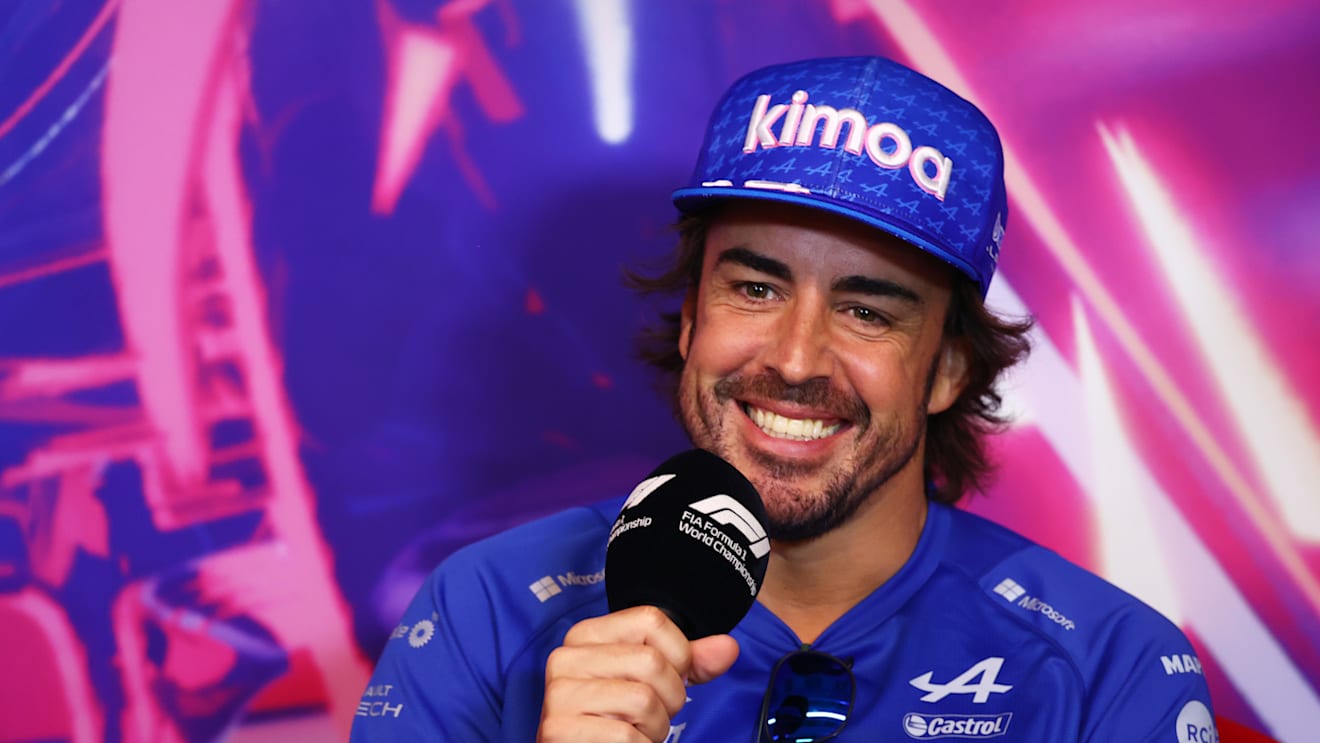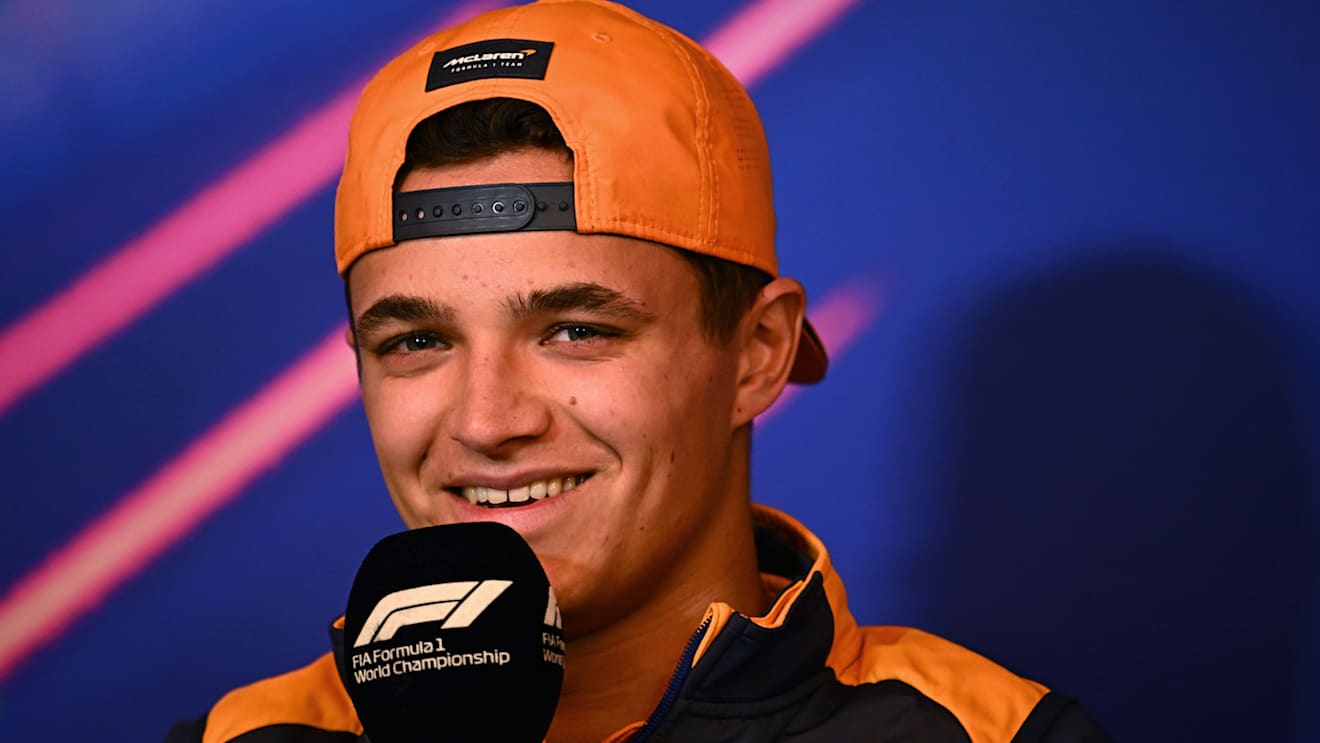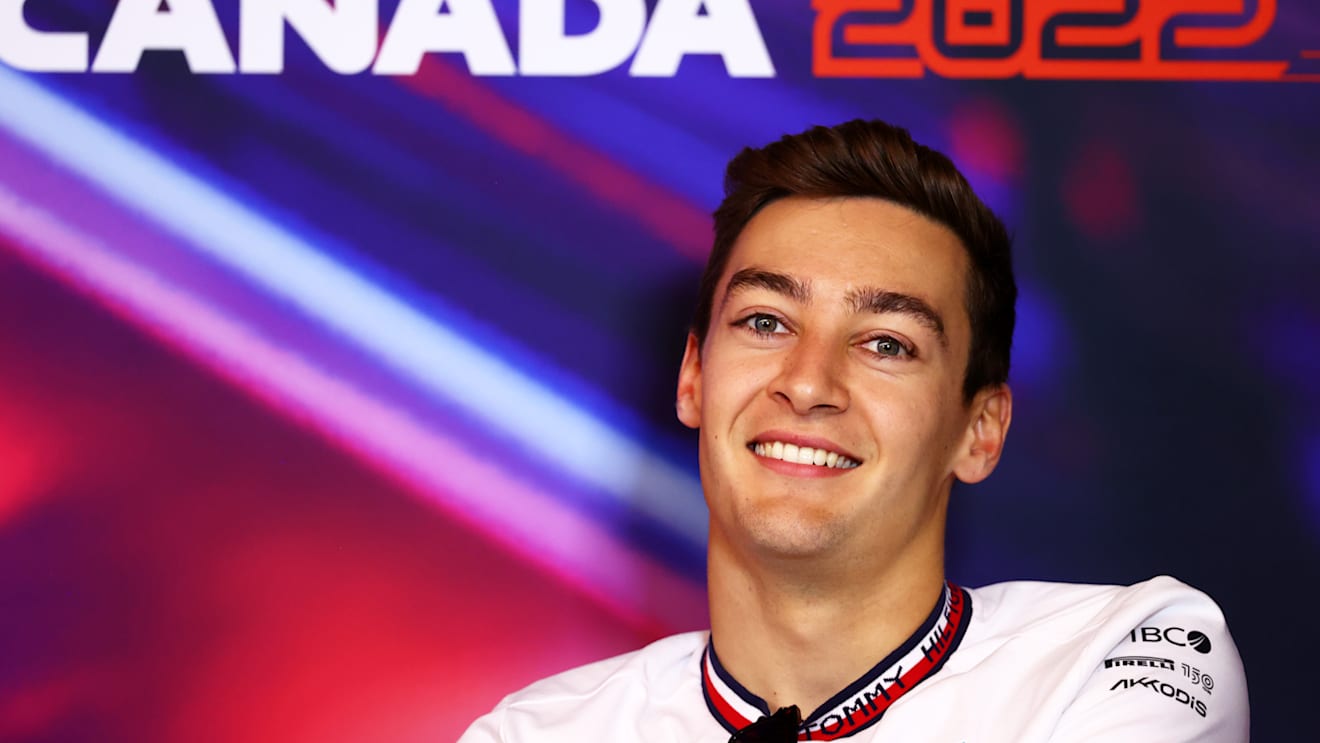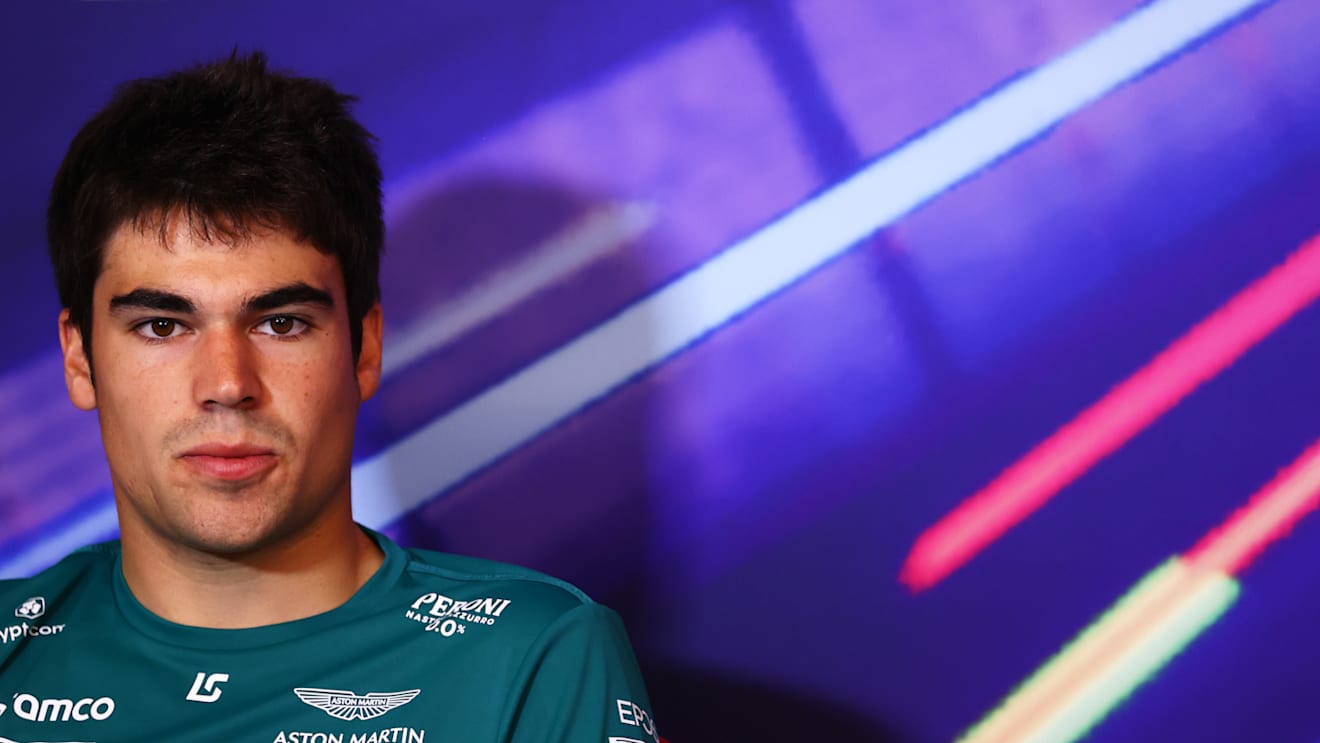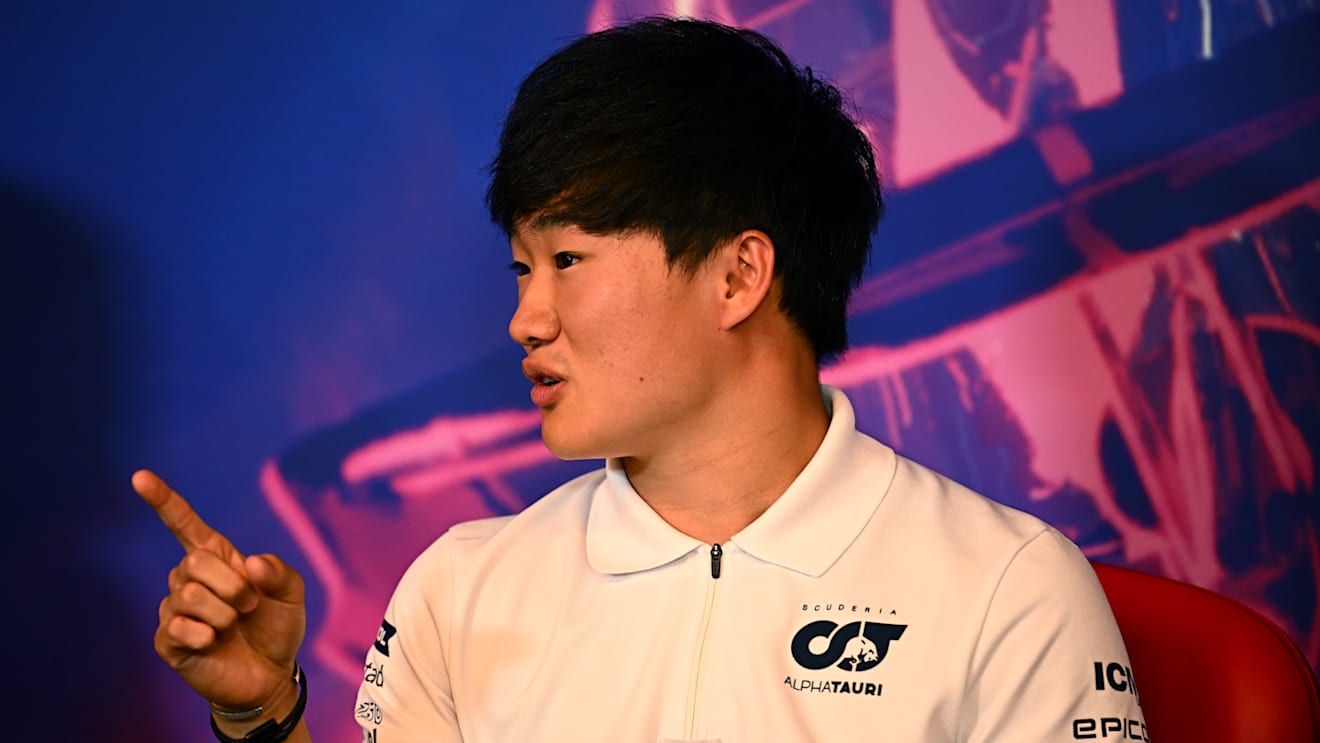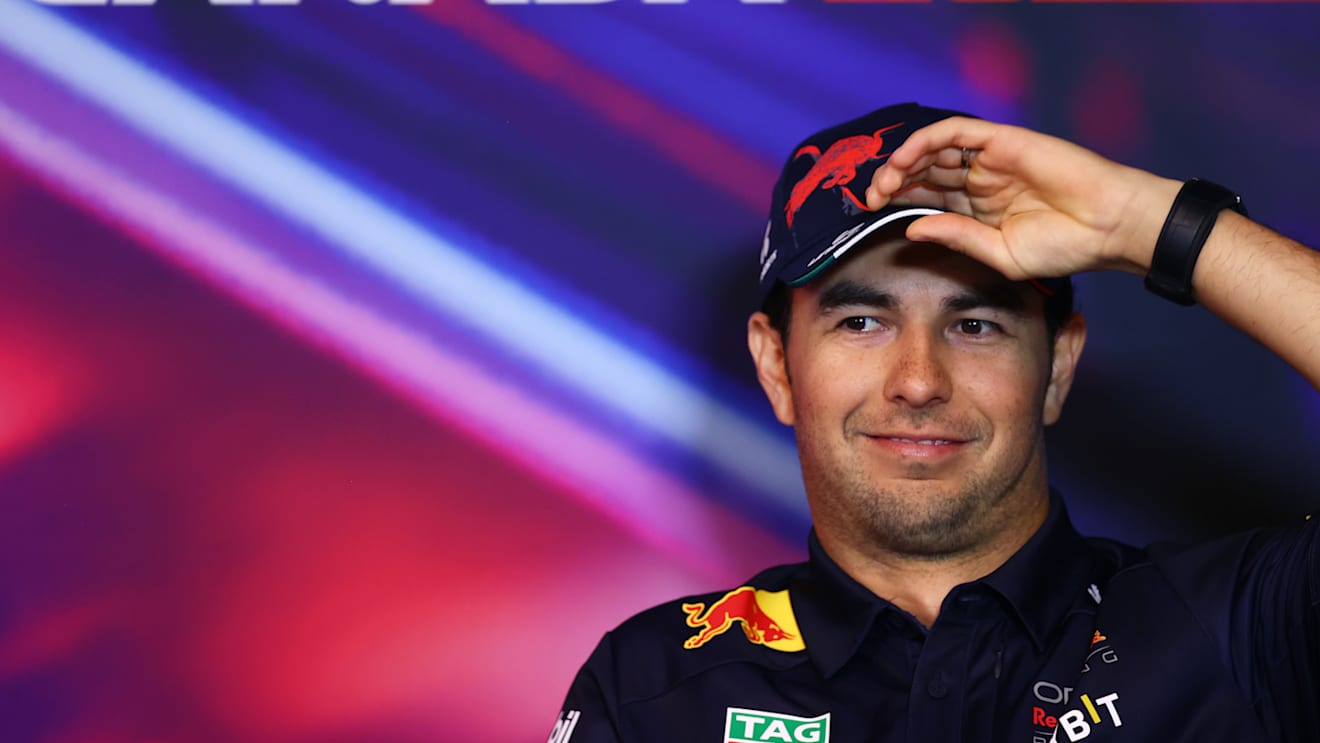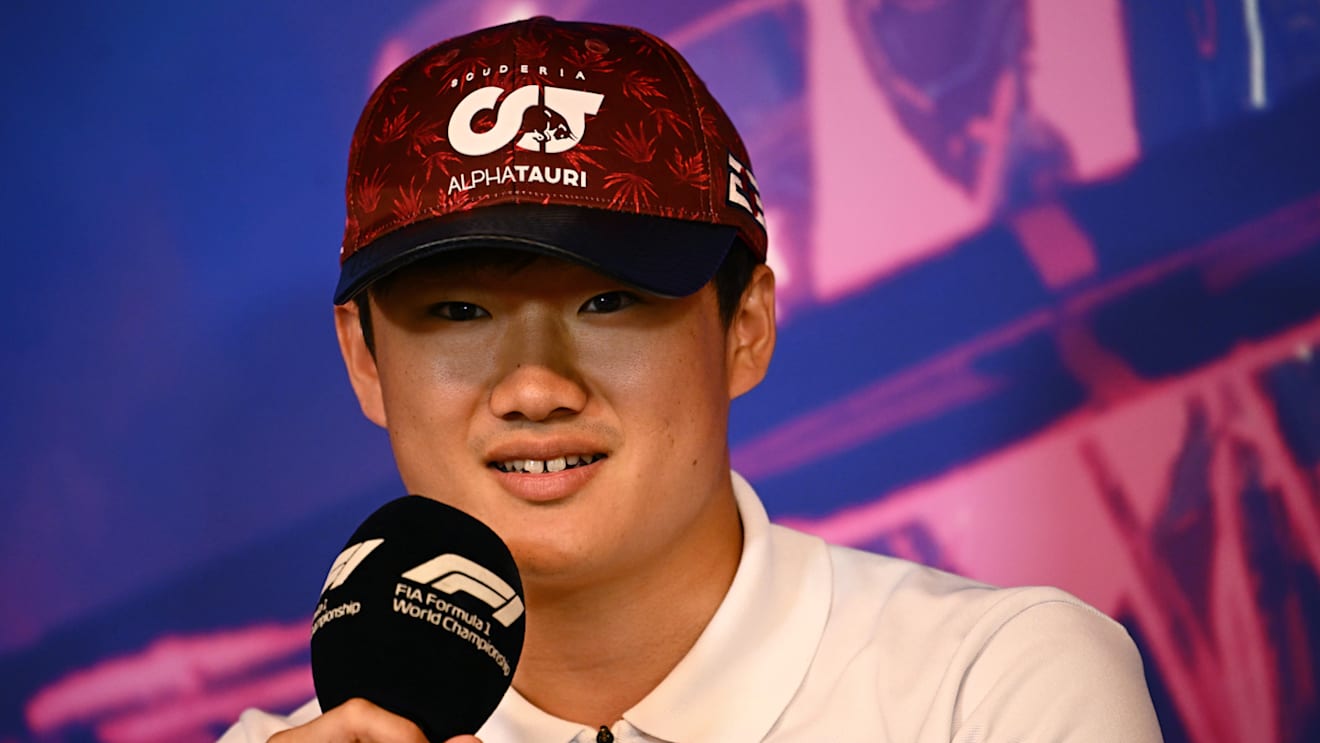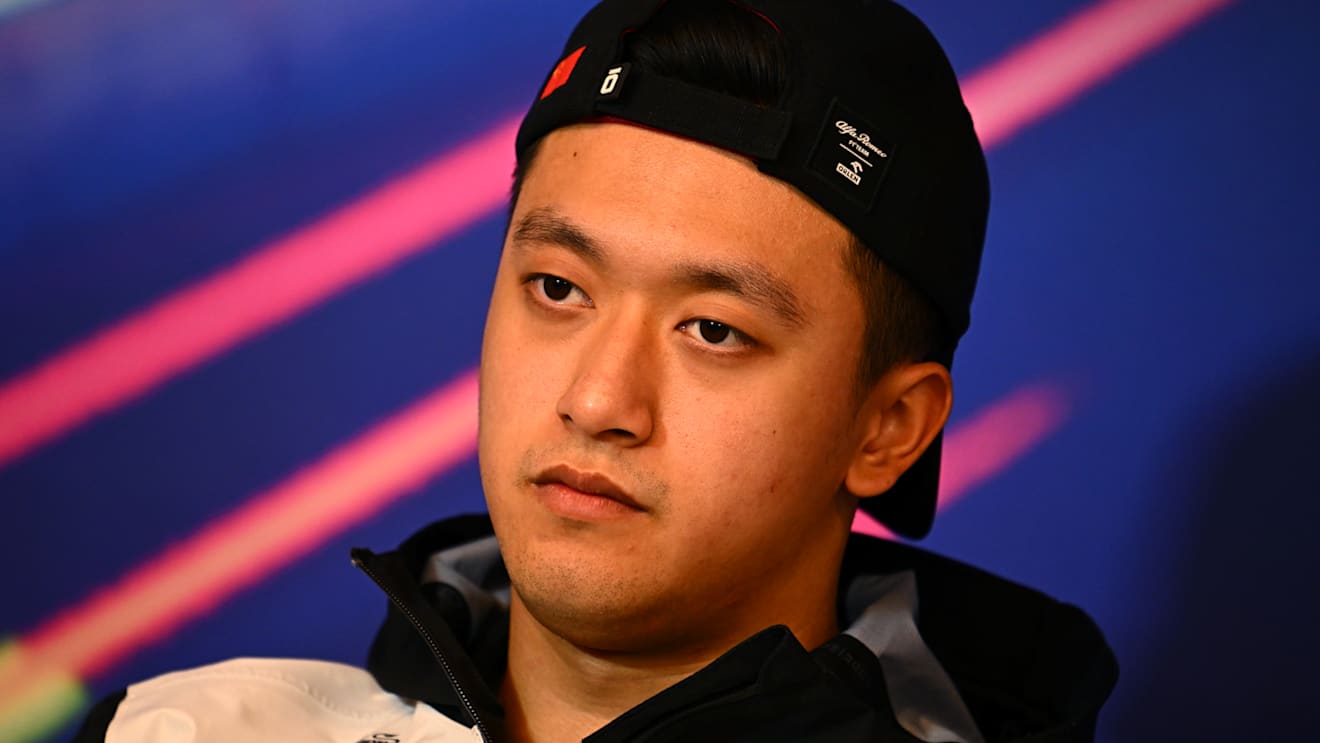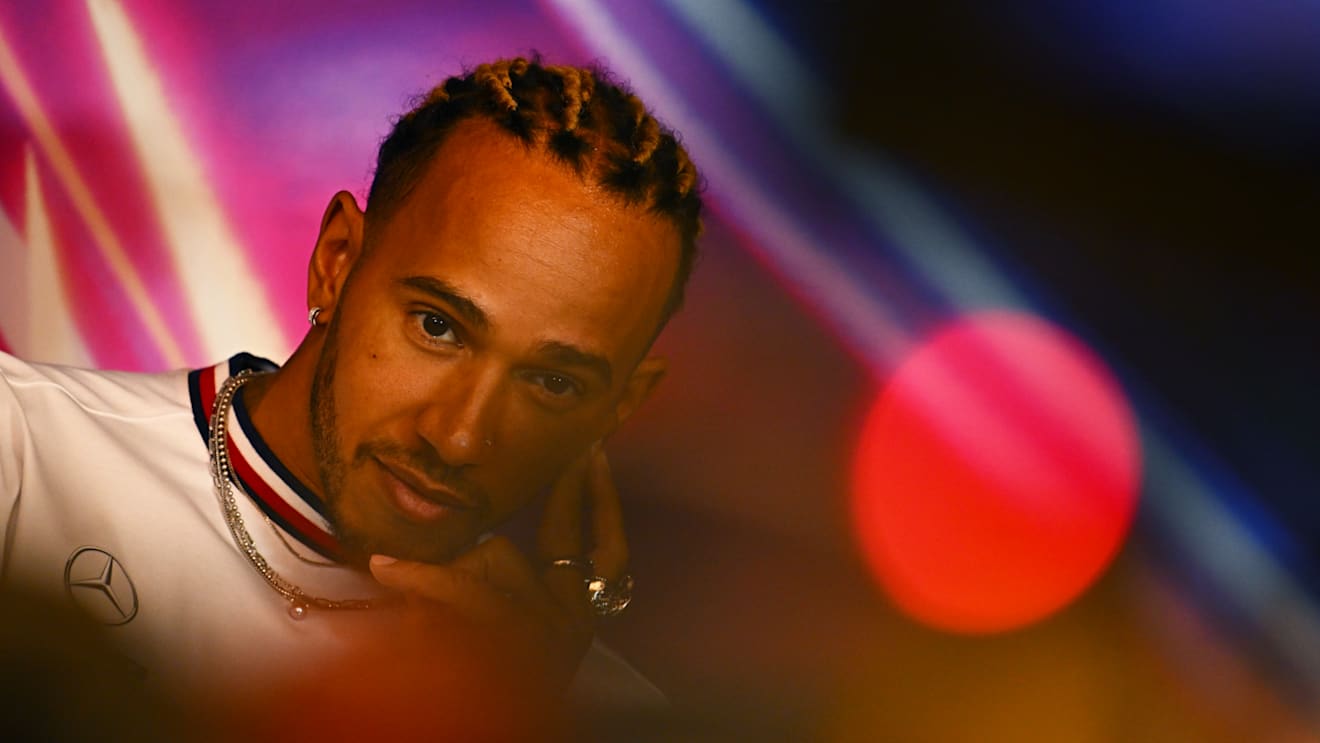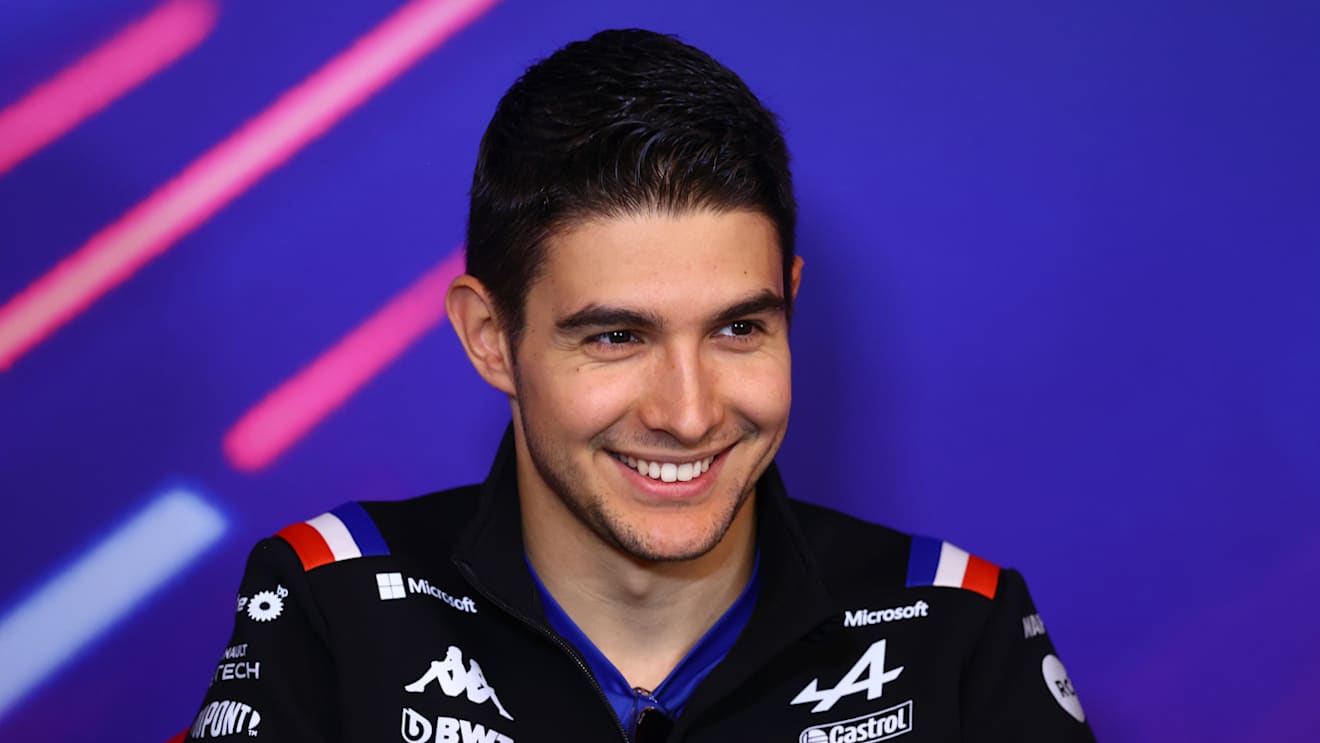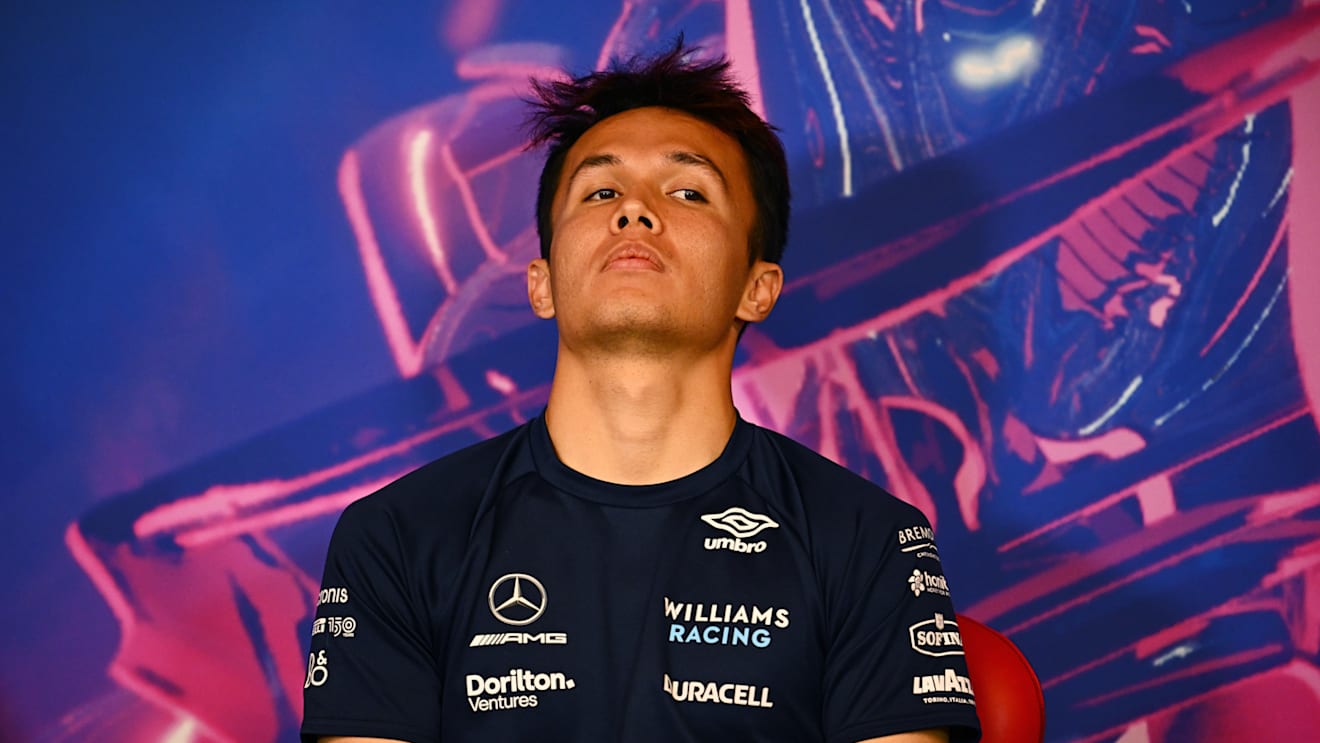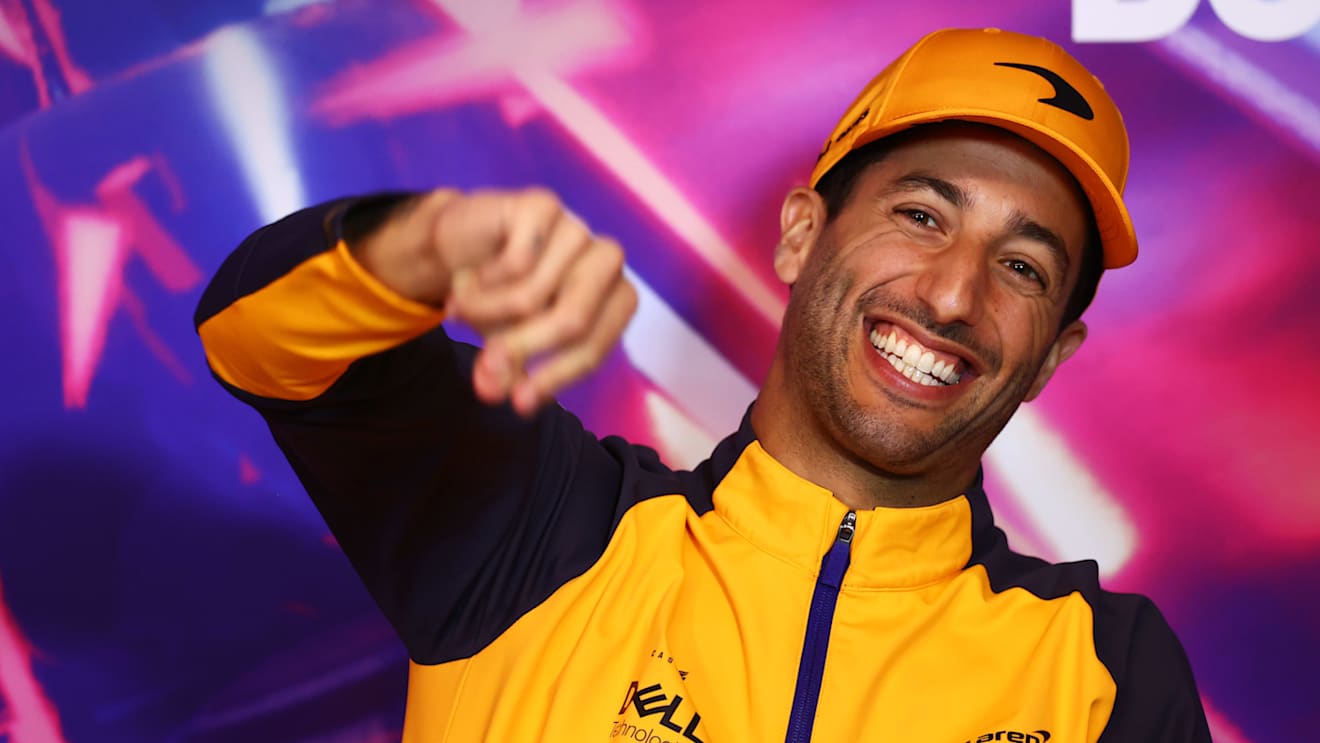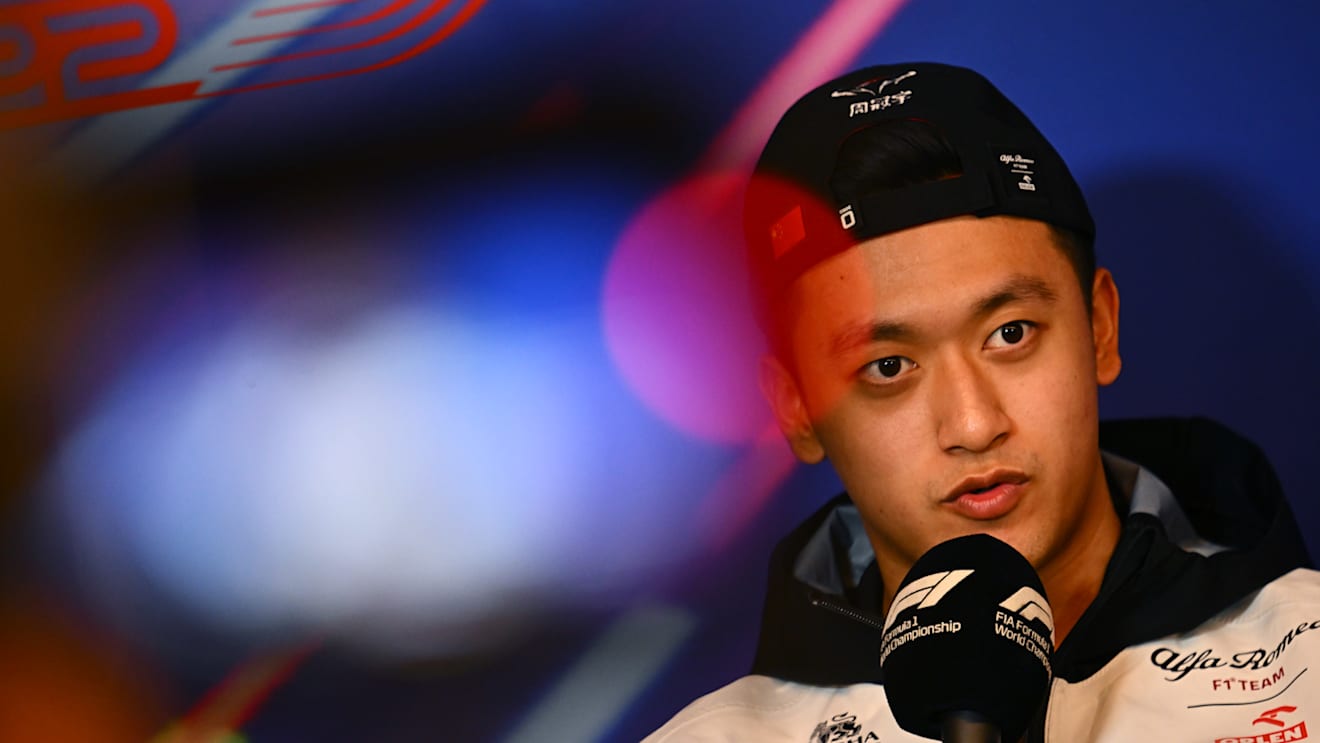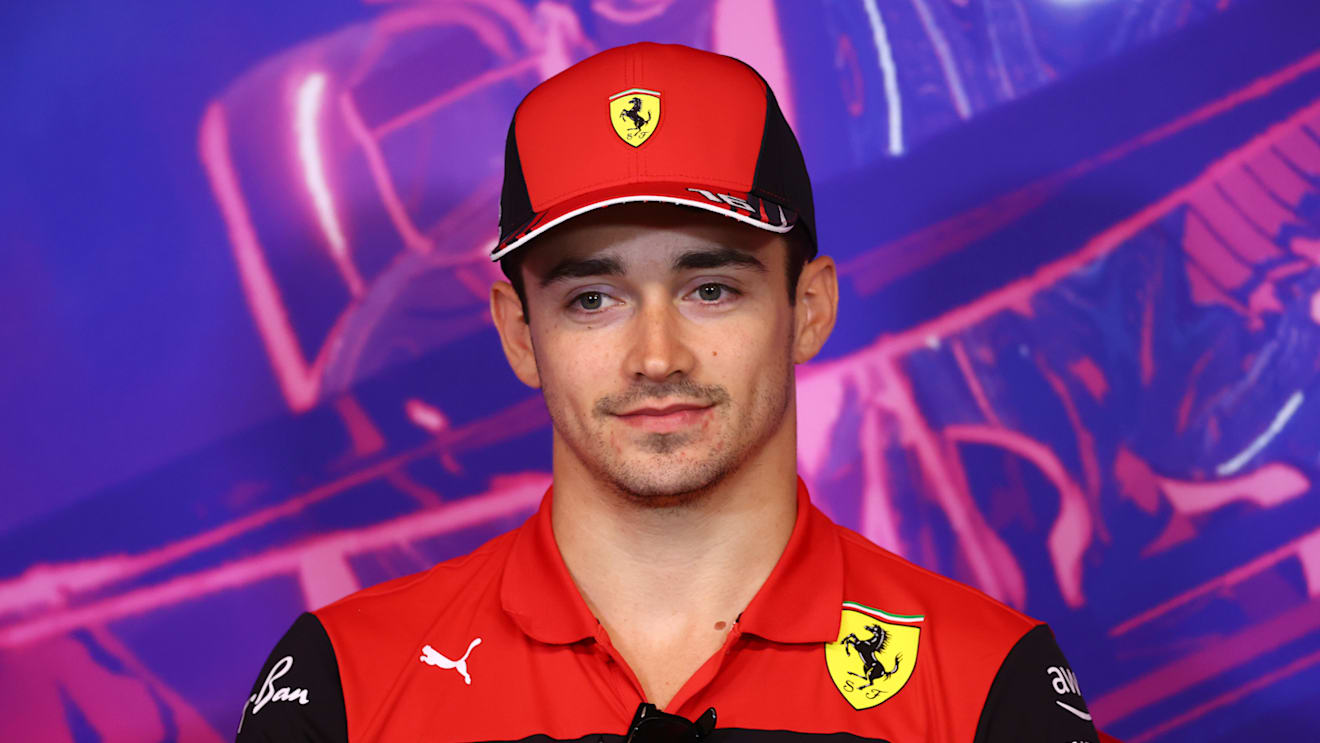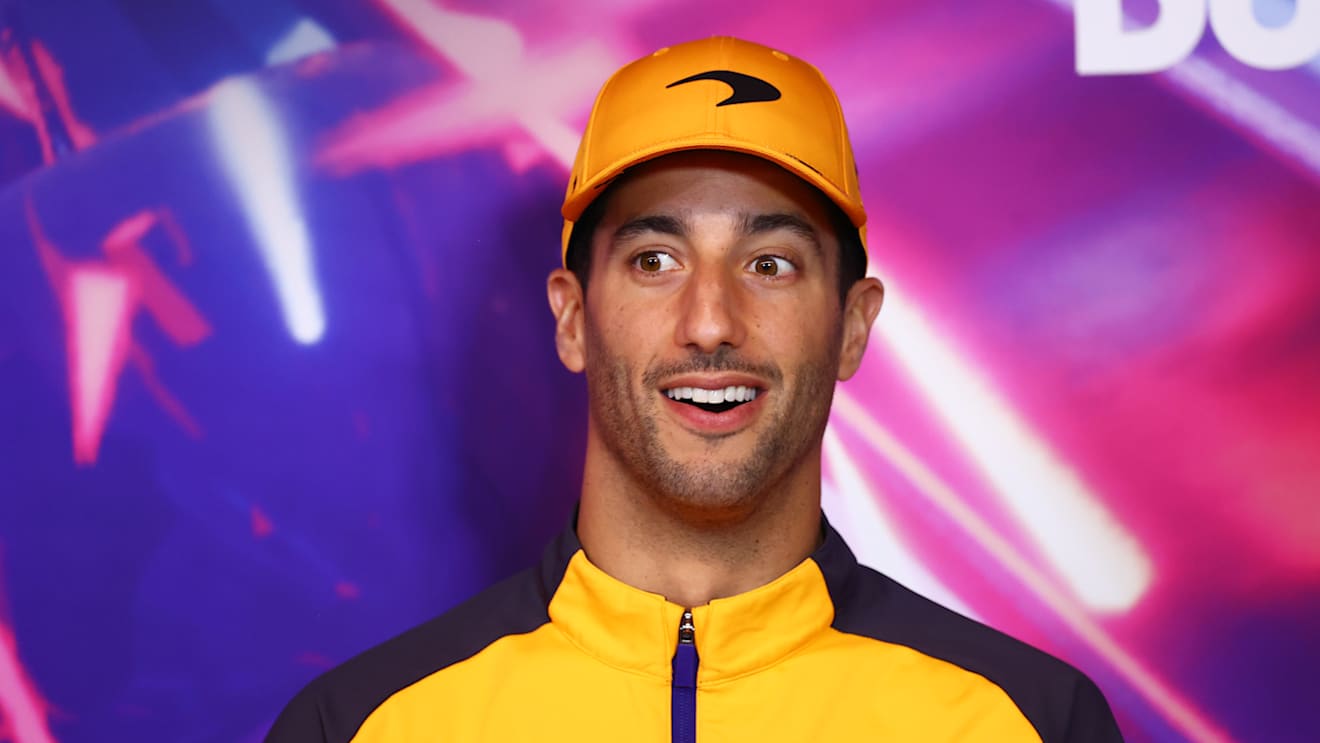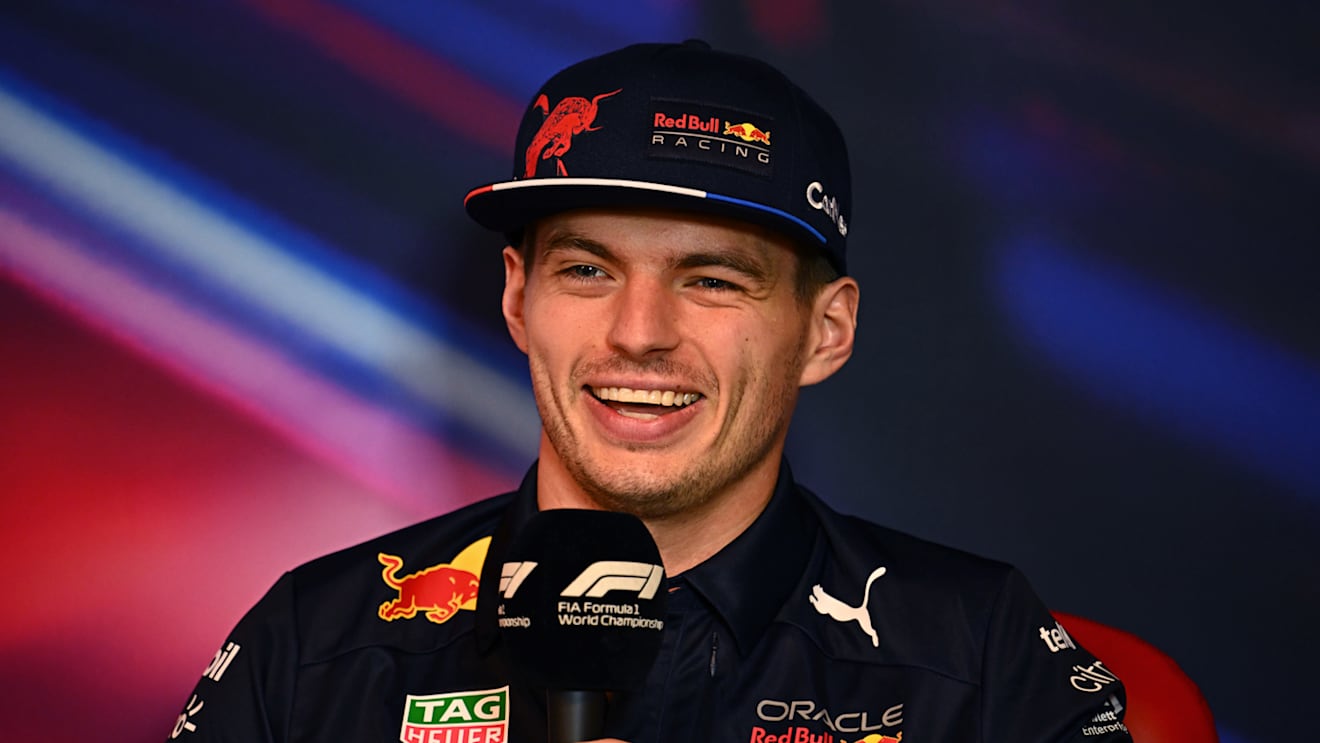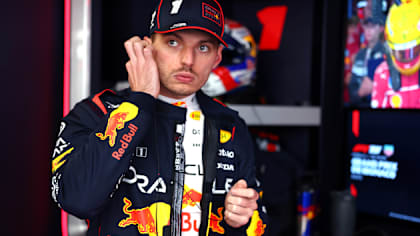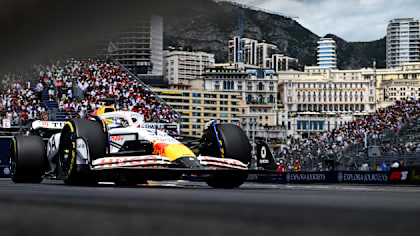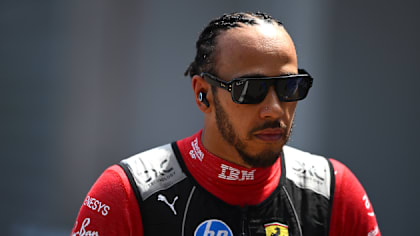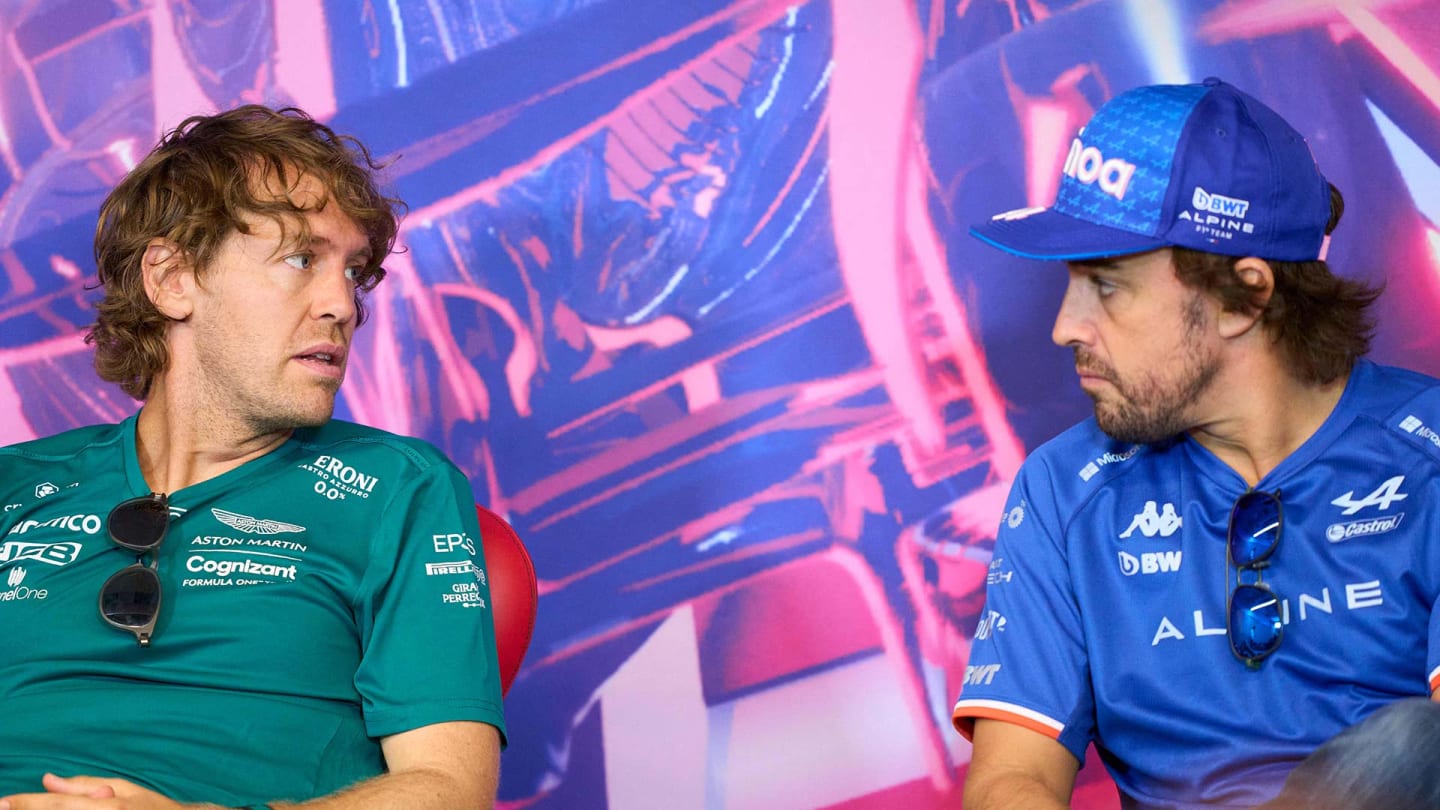
News
FIA Friday press conference – Canada
Share

DRIVER GROUP 1: Charles LECLERC (Ferrari), George RUSSELL (Mercedes), Daniel RICCIARDO (McLaren), Esteban OCON (Alpine), Lance STROLL (Aston Martin)
Q: I think we should start with the hometown hero. Lance. Great to be back in Montreal. Can we just get your thoughts on the first races since 2019?
Lance STROLL: Yeah, it's great to be back. I missed this place. It's always special coming home for the home race and yeah, I think the whole city is buzzing. I think everyone's happy to be back. Some great memories of this place. So, great to be back.
Q: Great memories. Just tell us a little bit about what your week is like, of the Canadian Grand Prix? Is it much busier?
LS: No, it hasn't been too bad, to be honest. I got here on Monday and had a chance to catch up with some friends that I don’t get to see very often. It's been it's been nice being back. And now looking forward to the weekend.
Q: And of course, you were in the points last time we raced here in 2019. What's the trick to putting together a strong weekend around this Circuit Gilles Villeneuve?
LS: It's a very challenging track. It’s a lot of kerb riding, and so not a lot of margin for error on a lot of the exits where the walls are, so I think it's just getting into a good rhythm, having confidence in the car to ride the kerbs and attack the lap. Just the place. I enjoy driving; it's always fun coming here.
Q: And for your fans, what can they expect from you here?
LS: Well, it's going to be be great to see some Canadian flags in the grandstands. And, yeah, hopefully a strong weekend and some points.
Q: Esteban, let's come to you next. Now you haven’t raced here since 2018. How excited to be back?
Esteban OCON: I'm very excited. It's such a great place, obviously, one of my favourite tracks, one of the old-school ones that remains in the calendar and that's pretty special. And we have also a big French community in Montreal, and it's great to see the support, from the city. Not only in the track, but also in the city. And since I landed, I saw so many supporters and it's awesome to see that the city transforms completely to racing mode.
Q: And you were back in the points last weekend in Baku, so you come here full of confidence?
EO: Yes, definitely. I think we had a bit more pace than where we finished in Baku. I definitely think there was more in the car than what we showed, but yeah, the aim here would be to score some good points and perform well overall.
Q: And does it work for that car that is quick in Baku is also quick here?
EO: It’s different challenges for sure. We were flying in a straight-line last week, a bit less straight here. I think it's important to be confident, riding the kerbs here and feeling the grip overall. We haven't been here for a long time, so there's a lot to discover with these new cars but yeah, different challenges; we should be competitive; there's no reason that we can’t perform.
Q: Charles, coming to you. And eventful journey here from what I saw on social media for you?
Charles LECLERC: Yeah, I missed a flight! But it's okay. I mean, I've been quite lucky because there was another flight an hour later, so I didn't lose too much time.
Q: Now let's throw it back to Baku. Obviously a very disappointing race for you, but now that you've had time to reflect, what positives do you take from that race?
CL: Well, in the pace. The pace in general is the positive. We cannot hide obviously, it's hard to take: three races in a row with problems or mistakes – but as a team, I think we are working extremely hard, the pace is there, which is the positive to take and we’ll keep working, to try and get on top of those things as quick as possible.
Q: As you say, it's been three races in a row. What is your message to your Ferrari team as we come into this Canadian Grand Prix?
CL: I think I don't have to give any message. I think it's clear for everybody the motivation is still extremely high. We are still working extremely hard as a team and we just want to get back to winning as quickly as possible. For the issues that we've had, we are working on them, and hopefully we will fix them as quickly as possible.
Q: You’ve been on pole for the last four races, and this race hasn't been won from outside the front row since 2014 – the man on your left – your one lap pace must give you a lot of confidence coming in.
CL: Yeah, it does. But unfortunately, we don't score any points on the Saturday! So yeah, the Sundays have been a bit more painful this season. But yeah, I can see some positive again. The pace on the race days since Barcelona has been good. Unfortunately, we couldn't show it at the end. But it's a matter of days before we can finally show it, I’m sure.
Q: Daniel, coming to you. Now, before we talk all things Canada. Can we just talk about Melbourne? Contract extension till 2035? What's your reaction to that?
Daniel RICCIARDO: You beauty! That’s probably the best way I can answer it. Yeah. That's awesome. It's obviously such a long-term contract as well. So it's really encouraging. And seeing as well, F2 and F3 are going to go there. I think that's one thing the Australian Grand Prix has done so well is, I guess, is fill up the weekend. There's always action on track. There's always things going on around Albert Park, and now with the addition of F2 and F3, I think that's really cool. So very happy, very happy.
Q: Will you still be there competing?
DR: It could be a stretch. I don’t even know how old I’ll be then. It's good to know that if I am, then I'll be home.
Q: Now Daniel, Baku saw you score your first points since Melbourne. Did you feel much happier with the car there?
DR: It’s definitely a better weekend. I think it was certainly smoother. I think it was good just to see how we came out of Monaco and the work that was done since Monaco, we really kind-of translated well onto the track. And everything we felt like we'd found or understood, I think we certainly showed that, or at least good signs of that, on track in Baku. It’s also not an easy circuit as well, obviously, with the nature of it, low downforce street circuit. So, to have a solid weekend there was encouraging. Just good, building blocks moving forward.
Q: Comfortable with the team orders situation, at McLaren?
DR: Yeah, I mean, in the end, it was, simply putting it, I had the orders early in the race, and then Lando had them at the end, so you could say it evened itself out. I think in the moment, in the race, if you're the attacking car, you obviously want to charge through, and try and try and get on with it. But these are also things that we talk about in strategy meetings, things like this. We're aware that this could happen during the race and also, in my experience now, like full trust in pit-wall. And they see the big picture of how the race is progressing, I guess. So, yeah, it all worked out alright in the end.
Q: And Daniel, quick word on this place. You won your first grand prix here, back in 2014, as we've already discussed, fourth in 2018, sixth in 2019. It's been a happy hunting ground for you.
DR: It's been fun. I still remember the very, very first lap I did here with Toro Rosso, when I was doing FP1s, and we did the install, and already on the install lap, I remember coming back, and I was like, this track looks so fun. So, it was just a place I loved really from the first lap I drove around it. And yeah, it's got a lot of character. As Lance describes, the kerbs and everything, you can really… some parts on the track feel like… remind me of go-karting where you really throw the kart around and try to chop off the corner as much as you can. And yeah, this circuit lends itself to that.
Q: George, do you agree with Daniel and everything he said about this place?
George Russell: Yeah, absolutely. I mean, I've only raced here once. But it was a good experience when I was here. And there's so much character, very unique, got the street circuit vibes and the kerbs and the track evolving so much. And I remember the fans just being so enthusiastic. This is the first race I actually had goosebumps when I did the drivers’ parade, because of the fans were just so upbeat and pumped up for the race. So that was pretty special feeling back then.
Q: Now podium view last weekend in Baku; team dinner earlier this week in Montreal. How is the vibe at Mercedes at the moment?
GR: When you get to the race weekend, everybody's so focused and you're ingrained in what you're doing; trying to find more performance and it's no secret that, as a team, we're going through a bit of a tough time and we want better performance, but you need evenings like we had on Wednesday night where you get away from it all, and you just do something normal. We were at the restaurant, probably 100 people there, and it was a nice evening.
Q: You said after the race in Baku, that it was a very tough race for you physically. Are you expecting more of the same here?
GR: Yeah, we'll have to wait and see. Obviously, it was a bumpy ride for us and for many, many teams in Baku, and obviously there's been some changes brought forward from the FIA. So, it's sort of pleasing to see that they've been on the front foot there. But we need to see if it actually makes any difference at all, and then go from there.
Q: So, do you welcome the Technical Directive from the FIA?
GR: I mean, I don't… I'm not a technical expert. So, I don't really know if that's going to improve things or not. But I think we, definitely as drivers, it's good to see them on the front foot and actioning something straightaway.
QUESTIONS FROM THE FLOOR
Q: (Andrew Benson – BBC Sport) For everybody. How disappointed Are you that the action that's been taken on bouncing won't have an immediate effect on the way the cars interact with your bodies? And do you think there's a fundamental problem with these new technical regulations, and they need to be rethought?
George, you've already touched on this. So, let's continue with you first of all.
GR: Yeah, as I said, firstly, what's been brought forward this weekend, I think it's probably more of a sticking plaster than the solution. And we need to wait and see, I think, for even the teams suffering the least, it's still an incredibly aggressive and bumpy ride. And you know, the FIA have access to all of the vertical acceleration loads we're going through, and it's far beyond what you'd expect is safe to deal with – so I mean, bigger conversations are definitely needed moving forward and where we go from here.
DR: Not much further to add. I think for me, Baku was the bumpiest ride I've experienced this year. But up until then, we were a little… I would say better off with it. So certainly not experiencing as much as some other teams. You know, watching the onboard, you can see, it certainly doesn't look fun at times. So yeah, obviously it's such a short turnaround. I don't know how much that comes into play, of having just a few days between races and how much we can do. But yeah, obviously open to seeing what we can do, moving forward. That's all.
CL: I don't completely agree, on my side. I felt like it’s the team's responsibility to give me a car that is okay to drive. Until now, I didn’t have any particular problems with it. Yes, it is stiffer than last year's car. Whether it's undriveable or very hard on myself, I don't think it is – at least personally. So, on our side, we found solutions to how to make it better.
EO: In my opinion, I think, we're not as bad as some other cars. You know, as Charles was saying, some cars are easier to drive than others, it seems like. But, you know, what's very positive is that, you know, the FIA is taking action in taking care of us and that's a very positive thing. There are two sides of it I think that we shouldn't mix. There’s the porpoising thing and the overall stiffness of the cars, because in some corners, that had already last year, for example, Monaco, after the tunnel when I hit the kerb badly, I did feel it hard on my body and that is not, you know, an end of straight thing or something like that. So, the stiffness of the car in general is also a problem. It’s not necessarily how much porpoising you have at the end of the straight.
LS: Yeah, I’m in agreement with what Esteban’s saying: I think it's not just the porpoising, saying it's the stiffness of the cars. This year, you hit a kerb, or a bump, it's, you know, big shock to the body. I think that over the course of the season, 23 race calendar, you know, it adds up. But as well, I think the porpoising does need to be addressed, I think this year, at times, it's been, really, really bad and, you know, very, very rough on the body. And I think, you know, both porpoising and stiffness is something that the FIA needs to address. And we need to think about going forward, because it's not sustainable for 23 races and then looking at the future with these technical regulations. If it's going to be like this every year, I think it's rough on the body.
Q: (Mathias Brunner – Speedweek) After the Technical Directive of the FIA – this is to Charles but other drivers are welcome – do you expect a change in the pecking order in the field?
CL: I'm not sure to be honest. This I don't know whether it will be the case or not. For me, it's not still very clear exactly what's going to change in the future. So yeah, I don't know.
George, can we get your thoughts?
GR: No, I don't think it's going to be make a big difference to be honest. I mean, yeah, I'm not too sure.
Q: (Alex Kalinauckas – Autosport) Question to George, please about your work off-track this year. It’s your second year as a director of the GPDA. How you finding that? It's been quite the year for driver feedback on lots of things. The missile attack in Jeddah; the porpoisiong; even the FIA and the jewellery ban, and things like that. How are you finding that side of things?
GR: There's quite a lot going on, to be honest, but no, all good. I think, Alex Wurz and Anastasia [Fowle]
who's another director, has been a huge part of this. And they do the majority of the work behind the scenes. It’s opened my eyes a lot to their input. I think we've all got a lot, all of us drivers, have a lot to be grateful for, for those two, especially. But yeah, enjoying it. There's always conversations ongoing and just trying to improve the sport. Also, in conversations with Formula 1, trying to improve circuit safety, design, whatever it may be. think it's just a good… something a little bit different and I enjoyed it.
Q: (Alan Baldwin – Reuters) A question for Charles. Could you just give us an update on the power unit situation? I've read reports that you may be getting a 10-place penalty on the grid here. What is the situation? You can tell us?
CL: Well, obviously, we are not in the best situation possible – then for the power unit change, I think there are still ongoing discussions. We'll try and push as much as possible the decision, so for now, no decisions are taken. But yeah, it's not the best situation to be in.
Q: (Andrea Cremonesi – La Gazetta dello Sport) Question for Charles. Do you prefer to take the penalty in a track like this, that you can make overtaking, or waiting a little bit more? Thank you.
CL: Well, I think again, this is part of our discussions and it's up to us to choose the best track where you want to get a penalty – if you get a penalty. And this is one of the tracks where it's actually quite easy to overtake, but they're also some of the tracks in the next three or four races where it's easier to overtake too. So yeah, again, we'll discuss and try and take the best decision from there.
Q: (Adam Cooper – motorsport.com) Question for George. Just wanted your thoughts on Silverstone. You're going there with a car that you can at least aim for a top six. Are you hoping that it will be more towards the Barcelona-side of things on bouncing rather than Baku?
GR:I think we're definitely hoping to have more performance in Silverstone – but definitely, really excited to go there: home crowd, to have a chance of fighting for a podium. And I think Silverstone is always driver’s favourite. Not just for the circuit itself but all of the fans there, they’re so passionate for the sport. Hopefully the weather holds off – but yeah, all in all looking forward to it.
Q: (Will Wood – Racefans.net) It’s been discussed about Baku being one of the more difficult circuits for all the bouncing. Very, very high-speed circuit. Next year we're going to Las Vegas, which could potentially be even higher speed down the very long straight. Do you have any concerns about the potential for how it's going to be at those high speeds there? Would you like to see the organisers do anything in advance to try and make the surface better? Or to try and stop the problems from being so bad?
DR: It's a long way away. I think it's so hard to… I'm sure we're going to be much further down the road by the end of next year with all this kind of stuff, and regulations and whatever. But yeah, I mean, I don't wish for the speeds to be lower in terms of … like, it's fun going fast. So, I'd rather we just set the cars up differently to be able to still go fast and have long straights. And I think they also encourage overtaking, you know, with bigger, bigger tows, slipstreams and all of that. So yeah, right now, it's not really… I wouldn't say I'm concerned a year or 18 months removed from it.
Q: (Ian Parkes – New York Times) Question to George, Daniel and Charles. This past week, I conducted an interview with a world leader in his field with regard to spines. He’s the past president of the British Association of Spine Surgeons, and is the spine lead for the World Federation of Neurosurgeons. So, as you can tell, he's got quite the credentials. His comments to me where, if this continues, you are at serious risk, or either rupturing or severely damaging your spinal disc. And obviously, there is also as well, the consideration of minor brain haemorrhages, given the way the head bounces inside the helmet, when you hear those kinds of comments, does that make you think twice about what you're doing? And how imperative it is that F1 and the FIA get on top of this as soon as possible.
GR: I mean, from everything you've said, there's not really much more to add. And there's obviously a lot of mixed agendas here from different teams and drivers. And we've heard it from Carlos at times, and Checo and Max earlier in the season, how bad it's been. But now that their performance seems to be strong, they obviously don't want changes because it can only hinder them. So it is obviously a bit of a shame to see performance prioritised over safety. But you know, there's no doubt in Baku, I could see my pit board, but I couldn't read my pit board because I was bouncing around so much. I think I saw a video of Lance on one of the laps, struggling to change the buttons on the steering wheel, because you visibly just saw how much the car was shaken around, how stiff it was, and everything. So, you know, we're all competitive animals here in this sport, and we all want to win. But yeah, we can't put our bodies at risk before any of that.
DR: Yeah, I think it's probably one of those ones where: is it an unnecessary risk? That's what we have to, obviously, answer. I think we take many risks, getting in the cars every weekend and it's part of what we love about the sport as well: going fast and putting it on the line and trying to balance on that fine line of risk and reward. But this one, obviously what some drivers are experiencing, it's not who's the bravest, it's just, you're going down the street holding it flat and it's just how… you've basically just going to hold on for the ride. So it's a risk I guess out of our control, if that makes sense. So yeah, I would… hearing some of that feedback, that you've that you've gathered. I'm not really surprised in terms of all that, because it is, it does. I mean, I felt it in Baku and obviously watching the others, it does… like it is quite real. I think the position we sit in as well, we're not really braced for these impacts. We’re kind of curled over, so we are probably a little bit vulnerable with our posture. But yeah, I think there's enough probably risk already in the sport.
CL: Yeah, I don't know exactly which data has been taking. But it's clear that when you look at Lewis, by example, getting out of the car after Baku, it doesn't look nice – but again, I think we should be careful and take data from various cars. And then and then see, because I don't think it is the same for everyone. And again, if when we race our car, at least, it is okay. I think we need to be careful to that, and see with whatever the problem is in different teams, and try to understand how bad it is from one car to another.
Q: (Jon Noble – motorsport.com) Question to George. The inference from the FIA TD was that they were looking at setting up this maximum bouncing metric, and any car bouncing and bottoming too much, would have to change the setup to stop the bouncing. Any concerns for Mercedes? Have your engineers told you about whether there could be competitive consequences for Mercedes, you've got to lift your car up to stop the bouncing that takes us out of the ideal set-up window?
GR: Yeah, I think, as we said before, from our side, from a performance aspect, having any changes is a total unknown. At the end of the day, the FIA are the rule makers, and they could bring in any regulation change they want. And nobody sat here knows if that's going to improve their performance or have a negative effect on their performance. So, we really have to see: there's so many different aspects and elements of these cars, that by raising the car, doesn't necessarily reduce it or remove. You're going in between porpoising and bottoming: it's two sort-of different issues at play here. And obviously, the stiffness of the cars are really bad, but I mean, time will tell. It's… I hope it's easier to drive for everybody and it doesn't have a knock-on effect for performance for anyone.
Q: (Daniel Mora Jimenez – Motorlat.com) Question for Charles. You've shown outstanding performance, pace throughout the season, as you've out-qualified your teammate at every single race to date. What is it about this car that is suiting you more than Carlos? Thank you.
CL: I like the way the car handles. I like the balance of the car through cornering. It's a bit more of a pointy car this year. The rear is quite a lot more moving around. And this seems to fit my driving style a little bit better. But yeah, I'm sure that it's only a matter of time before Carlos gets at ease with this with this car.
1 / 7
DRIVER GROUP 2: Pierre GASLY (Alpha Tauri), Nicholas LATIFI (Williams), Sebastian VETTEL (Aston Martin), Fernando ALONSO (Alpine), Sergio PÉREZ (Red Bull)
Q: I feel we should start with the local boy, Nicholas Latifi, your first home race. Is this what you've dreamt of for a long time.
Nicholas LATIFI: Yeah, it's definitely a very special feeling to finally have the opportunity to be here and get to experience my home Grand Prix. You know, I've obviously driven in a few FP1 sessions here but I think coming here as a race driver, and once I finally drive past in FP1 session is going to feel pretty special. I mean the last few years… I think it goes without saying that it's been pretty frustrating and disappointing to have missed this race, not only because it's my home race but I think it is really one of the best races on the calendar. So yeah, to have the opportunity to be here now, it's just a very, very special feeling.
Q: Well, how different does it feel? And are you doing anything different? I think, a special helmet?
NL: Yeah, I do have a special helmet. And yeah, I think naturally, at any driver’s home Grand Prix there is, for sure, a bit more going on in the background. I flew straight from Baku so I've been here since Monday evening. We have tried to get some media stuff and commitments done before Thursday, just to kind of lighten the load a bit throughout the weekend. In reality, I'm just trying to treat it the same as any other race. In reality this race is no more important than any other race. For sure there’s that special feeling of being here and having that home support? I know I'm going to have so many family and friends here. A lot of them wouldn't have even been able to come to any Formula 1 races so far in my career so yeah, it's obviously pretty special. But I'm just going to try and keep it business as usual once I get on track,
Q: As you say, you've done some FP1s before but did you ever come to the race and watch as a kid?
NL: Yeah, many, many times. To be honest I don't remember the first year that I came here. I was maybe like seven or eight years old, something like that. And I think since then I've only missed the Grand Prix once in 2012, when I was in Italian Formula Three. I just happen to be racing on the same weekend. So yeah, even before I started racing, it was always kind of like the first weekend off after school is done, you know, come over here, make it a family weekend, reuniting with a lot of my family that still lives here in Montreal. And yeah, it was always just a very enjoyable weekend in the summer, well to kick off the summer really, the summer break so it's pretty cool to be back.
Q: And what about the track? Give us your thoughts?
NL: Yeah, I think it's always been one of the more kind of technical tracks. It's very old school which is cool because we don't have a lot of them on the calendar anymore. I think this track - specifically the curbs - has always been quite a unique aspect here in these fast chicanes. Nowadays all the new street tracks on the calendar are very similar curbs, all the permanent tracks, very similar curbs. And this is one that has still kind of retained, I think, a lot of its character and that, I think, is going to add a challenge especially with these new cars that don't like curbs at all. At least that's for our car. So yeah, it'll be interesting, for sure.
Q: Pierre, let's come to you next. Been a busy week for everyone in Formula 1 coming from Baku, but I believe you've had an even busier week than most tell us what you've been up to.
Pierre GASLY: It's been quite a busy time, yeah, we were actually quite busy with Max. Red Bull always manage to get a lot of activities into… yeah, always keep us entertained, let's say. So yeah, we flew back to Monaco with a nice day in Monaco on Monday just to recover. And I flew to Austria on Tuesday where we got to drive a Formula 1 double-seater. This was my first time driving these cars, taking some passenger and scaring them around Austria which was pretty cool. Also driving a V10 engine which I must say I really enjoyed and really liked. It was from ’98. No, the one they had in Australia. The one they had in Australia this year, the double seater. I can't actually remember but anyway, it was very pleasant experience. It was only nine laps so it was pretty short and then we flew straight from Austria to Canada, but oh yeah, quite busy. We managed to be in three or four different countries in 48 hours so it was quite intense.
Q: Did I see a photograph of you being driven by Max?
PG: No, no, no, this didn't happen. I tried to take him behind. He wasn't keen. I tried to get Helmut in the car behind me but h wasn't keen either. I wonder why. But no, it didn't happen.
Q: All right. Well, let's talk a little bit about Baku. You said prior to the race that you wanted to kickstart your season there. And you certainly did that with that P5. What made the difference last weekend?
PG: Well, I think we were just, yeah, more competitive and yeah, definitely faster there. We didn't do any mistakes from FP1 until the race and yeah, this was positive, you know, we just did a good job from FP1, good strategy, and yeah, just maximised our weekend.
Q: Do you have reason to believe that you'll be quick again here this weekend?
PG: Yeah, we should be, we should be. We'll find out in the conditions, in the rain and the dry but I think she'll be good.
Q: Sebastian, coming to you now. Two points finishes in a row with sixth last time out in Baku. How good is this car now, this Aston Martin?
Sebastian VETTEL: It’s getting a bit better. We didn't have any new parts in the last couple of races but I think we've been able to experiment a little bit more with the setup and tuning it a little bit more, understanding more where the car wants to be because, you know, bear in mind that in Barcelona it was a basically brand new car and no experience with that car yet. So yeah, I think we still have some ideas for this weekend that hopefully help us to be again competitive and, you know, fighting that midfield. It’s very close, you have Alpine, Alpha Tauri, Sauber or the Alfa, ourselves and if Williams has a strong weekend they can also be in the mix so it's a tight, tight field and if we manage to find a little bit of extra then immediately starts to start to pay off and look better. So let's see. I like the track and hopefully we have a nice, nice weekend.
Q: It's a small sample of only three races, but you have got more and more competitive by the race. What can you achieve going forward?
SV: Well, I think we need to be realistic as well. Finishing in the points for us is a major success. Obviously, we had two positions that we benefited from in Baku because of the Ferraris not finishing. But yeah, I think if we can get in that range, if we can qualify around P10 and then race there as well then I think that's good for us. You know, you have already four positions completely locked at the front, and then another two with a Mercedes that are usually ahead of the midfield. And then you have those four positions left. I think McLaren will be stronger again. Maybe Baku wasn't their cup of tea. Maybe they will struggle a bit here as well with the big rear wing they have. So we will see. But yeah, it's not going to be easy, but we will fight and try to squeeze everything we can
Q: You say you'd like the track here. Why is that?
SV: I won last time around here, at least I felt like it.
Q: Crossed the line first.
SV: Yeah. Yeah, I'm over it so clearly, as you can see. No, I think it's always been a good place. I liked it, enjoyed it here, it's a rough place. It's like others said it's technically demanding and with the curbs can be quite harsh. I don't know how this year’s car will perform or will like it or this year’s cars in general. But yeah, I think it's a circuit where the driver can also make a difference. So let's see what we can do.
Q: Fernando coming to you now. Talk to us about ice hockey and your trip to the Montreal Canadiens yesterday.
Fernando ALONSO: Well, not much. I just visited the team here. It’s the first time that you know I see any arena of ice hockey. In Spain I never saw on TV or I never put the skates on so yeah, I cannot comment too much.
Q: You got the T-shirt.
FA: Yeah, that's cool.
Q: Now Fernando, what about this place? You've won here before you've had a couple of podiums. Just how good is it to be back?
FA: It is good. Montreal is one of those places that everyone wants to come to. It's a fun city. It's a good weekend normally, a lot of action on track. The walls are very close, the exit of the corners. The weather can be a big factor as probably also this weekend, and yeah, the whole city seems to embrace the event. Everyone is happy to welcome Formula 1 again, and it should be a good one.
Q: You've scored points for three races in a row: 9, 7, 7. Is that where the car is now? Or do you feel there's more performance in it still?
FA: I think right now we are struggling a little bit more than at the beginning of the year, which I think we were top five, top six, honestly, before Mercedes fixed some of the problems. I think we were in the fight with them. And now we seem two or three steps backwards compared to Australia or Jeddah but yeah, there are some new parts again this weekend to fine tune the car for this circuit. We were very fast on the straight in Baku. The car seems to like the low, medium speed circuits. And Canada is one of those so hopefully we are competitive.
Q: Checo, thanks for waiting. Now, you said after the race on Sunday that you had a few questions for your team such as the pitstop delay. Have you got the explanations you were after?
Sergio PÉREZ: I didn't say that but… I mean mainly was the lack of pace, that cost us the victory. We had too much degradation and I think we’ve got on top of it. We understand why that happened and I think with the pitstops it can happen you know. The boys are pushing flat out and a little mistake can be huge. It's only two and a half seconds slower but it's quite penalising, you know, in a race time. But it’s part of the game, the boys are pushing extremely hard. They've been really good throughout the season so we just had a one-off, hopefully.
Q: And what about here? How confident are you coming in?
SP: Yeah, we are, we are confident. I think we can be strong here around this place. Obviously, it's a track that you have to be very good in low speed and Ferrari seem to be extremely strong in in that.
QUESTIONS FROM THE FLOOR
Q: (Adam Cooper - motorsport.com) Sebastian, can you tell us about your T shirt this weekend, the climate crime shirt? And secondly, how do you find out about these local issues in every country we go to. Do you do your own investigating or people now contacting you and asking for help?
SV: No, nobody's contacted me. I do a lot of reading on the subject because I find this… fascinating might be the wrong word but there's a lot going on. And I think we live in a time and age where we are so much aware of a lot of things. I think, you know what happens in Alberta is a crime because you chop down a lot of trees, and you basically destroy the place just to extract oil. And the manner of doing it with the tar sands, mining oil sands, mining is horrible for nature. And obviously Canada's greenhouse gas emissions also have gone up since they started doing it. The site has only, I think been, as far as I read, founded like 20 years ago. I think the prime minister said that no other country would find these resources and not take them up. I think in principle, you know, every country and every person has their opinions and their stance. My personal opinion is I disagree. I think, you know, as I said, there's so much science around the topic that fossil fuels are going to end and living in a time that we do now these things shouldn't be allowed anymore, and they shouldn't happen. So I think it's just in principle to raise awareness of what's going on in the first place. I think a lot of people in Canada, a lot of people around the world don't know about it and yeah, that's only a small gesture. We'll have a special helmet as well this weekend, highlighting the fact and yeah, I think, you know, it's just to think about future generations and the world we leave in their hands once they’re old enough to carry on, to take care of it. I think it's only fair to look after it and not destroy it.
Q: (Jesus Balseiro – Diario AS) Fernando, it doesn't look like the Alpine is the car with the worst bouncing so far. With this new Technical Directive, if some other cars have to raise up a little bit, do you think the Alpine could gain some competitiveness?
FA: I don't know honestly. This is a very difficult topic to really have an answer. I think in our case we will just concentrate on the things that we have to do. We've been quite okay in the first races, so it seems that we can control it. We just stopped lowering the car at one point because then it’s undriveable. And yeah, only in Barcelona, I think we had a very extreme case, when we had a little bit of a problem setting up the car and we had a very difficult race in Barcelona with the bouncing. I think it was actually the double of what Mercedes experienced in Baku. That was my rate of bouncing in Barcelona but still okay, manageable.
Q: (Luke Smith – Autosport) On the porpoising issue again. The FIA Technical Directive, what are your thoughts on it? George said he thought it'd be a bit of a sticking plaster to try and look at a solution to the issue. And do you think it's fair that the FIA is intervening or should the onus be on the teams to just raise their cars a little bit to stop the cars from porpoising so much?
SP: Well, I think all the teams are chasing the balance or chasing the downforce and the way to find that is just to go as low as possible. But there certainly is a limit on how low you can go. We all want to be lower than we currently are but we all have limits where we can go to and if you're hitting those limits, that is not healthy for the drivers, like few of the drivers commented last weekend. So I think it's a good intervene from FIA to try and calm it down.
FA: Yeah, more or less agree. I think as drivers we seem to wanted to ask some help from the FIA, because obviously from us, it's difficult sometimes to go to our teams and tell them to lose performance, just because we have pain or whatever. So you know, if they can do it for us it’s better, easier.
SV: Yeah, I think it’s good. Obviously it will be very difficult to foresee now what the solution is, for everybody. It will be impossible for all the teams to agree either. But, you know, it cannot be that as drivers (we) will suffer injury short- or potentially long-term, and suffer for the rest of the life for stuff that can be avoided. Not every sport practised to the extreme is not healthy to some degree but yeah, I think, you know, looking at the future it can't be going on for another four or five years like that. So it's good that the FIA starts to look into it and, you know, put safety over performance.
NL: Yeah, I agree with all that's been said. I think, you know, if you look to the next three, four years, if these were the kind of cars with the bouncing and you know, harsh ride that a lot of guys are experiencing, it's for sure going to have longer term negative health effects so I think, yeah, the intervention from the FIA is good. I think there's going to be the specific teams and drivers that are maybe happy to deal with it at the expense of gaining more performance versus some that are not as so for sure there's going to be some people happy with the directive, some people not. But yeah, I do think it was a good thing for the FIA to intervene.
Q: Pierre, I've just been informed by Fred Ferret at L’Equipe that Jean-Louis Trintignant, the actor has just passed away very sadly. He played a rally driver in Un Homme et Une Femme. He would like your reaction to that.
PG: I'm not too sure who we are talking about… I'm terrible with names. I've always been terrible my whole life, so I need to double check.
Q: (Jeff Pappone – Inside Track Motorsport) Sebastian, back to your activism. I'm just wondering, you've been very vocal on the LGBTQ front. How important are organisations like Racing Pride to Formula 1 and motorsport in general? And also, personally, why did you feel compelled to speak up?
SV: Well, I think it’s important to use… to realise that you have a responsibility or you have a platform to communicate, to reach people and you know, if you want to sell stuff then you have a platform and it probably allows you to make money but I don't think ethically that's a really important thing, that those are not important things. But when it comes to human rights or equal treatment, I think those things are big when it comes to the climate crisis, which affect every one of us already today. And more so in the future, I think those things, you know, are more important than anything else and therefore they deserve to be mentioned and deserve to be addressed and trying to reach people and raise awareness. Why are they important to me? I think it's just fair, it's just the right thing. It naturally feels like the right thing to talk about, and to express my support for people who suffer from prejudice and just because maybe they fall in love with another man or with another woman, or because they are different, you know, coloured skin. So I don't see why these things should matter. It should be accepted, just like a lot of other things are accepted. So yeah, it feels like a natural voice that comes out to talk or to speak up.
Q: (Andrew Benson - BBC Sport) This is for everybody: in the context of this Technical irective, and the fact that ground effect cars will always need to be run low and stiff to get the ultimate performance, do you think Formula 1's taken a wrong turn with these regulations, especially given that they don't seem to have achieved any of their objectives?
PG: Well, personally, I don't think they took a wrong turn. I think it's just some of the side effects we are getting at the moment are probably slightly more extreme than we expected. And I think it’s just fair to look at some options, look at all the solutions available to find the fairest treatment towards all the teams, but just to consider we should, probably as drivers, not been put in a corner where we’ve got to trade between our health and performance, because obviously we're racing drivers, we will always go for performance every single time. So no, I think they did it clearly, didn't take a wrong turn. But it's just finding the right compromises going forward and as you say, like for sure with the ground effect, that's the way it works. But I'm sure there's other ways to find more performance so we could be as competitive but just having that fine margins that gives us the availability to stay in shape over the next 10/15 years so yeah, just for probably some of the guys, not going to be here in five to 10 years, but also the young guys coming now, it's probably clearly something that needs to be to be addressed. And just happy to see there is some action, a plan to move forward.
NL: Yeah, I agree with what Pierre said. Yeah, I don't think it was the wrong direction that F1 went into. I think, yeah, the, let's say, porpoising that's returned now (with) the reintroduction of ground effects cars, yeah, maybe it wasn't anticipated, how extreme it's been and how it's, let's say, you know, just a very negative feeling from behind the wheel. I think with a whole new set of regulations, a whole new generation of cars, there was always going to be, let's say, maybe some growing pains, if that's the right word. So I think it is a lot of obviously very, very smart people, smart engineers, working in Formula 1 and obviously a lot of smart people working for the teams so I think, yeah, with the new directive over time, whether that's by the end of this year, going into next year, the coming years, I'm sure there will be solutions that will be found to still have performance and yeah, mitigate the negative effects for the longer term health of all the drivers.
SV: Well, I think the objective with the new regulations of the new cars was to make it better so I think the turn has been right. Obviously, we still have to see the bigger picture over years to come, whether it has been the right direction or not, but we are able to follow each other closer. Obviously, the cars have less drag, which means we have to follow closer as well otherwise we won’t make the overtaking. We still rely on DRS. Ideally, we find a set of regulations where we're not relying on any assistance to overtake but let's not forget where we are coming from. I think in the bigger picture, with these cars and regulations, we just need to find a way, as I said before, for no upside with the porpoising that we suffer other than a little bit of performance. And there's no upside to the sport. And there is a lot of downsides for us driving the cars when it comes to comfort, health long term. And therefore I think it's good that the FIA is trying to have a look and we will see in which form they are going to intervene.
FA: Nothing to add.
SP: You should be concerned about it for them. I mean, I think it's too early to judge this regulations. I think they've brought good racing, you're able to follow closer. Certainly, yeah. I think the downside of it is the bouncing that we are experiencing. But I think it's only race number eight so we are just starting a new era so we have to give time to the new regulations to get on and I think should we be OK.
Q: Fernando, back to you. Pierre’s question: will you be here in five years? Will you answer that?
FA: I don’t know, maybe, yeah. There is a possibility.
Q: (Daniel Mora Jimenez – Motorlat.com) Checo, you're clearly on a streak right now of good results. Do you think you have found something in your car that makes you feel more confident with it? If that's a yes, what would that be?
SP: Yeah, I think I'm definitely more comfortable with the car than I was last year. For example, it took me a bit longer to adapt to last year's car so this year, I can feel that already from FP1 I can start working on the car instead of working how to exploit the maximum out of the car. So that's a huge difference over the weekend so when I go into qualifying, I'm much more prepared and similarly when I go into the race, so I think, yeah, we’ve got a good platform. I'm confident with the car and I know what I have to do with the team to take the most out of it.
Q: (Luke Smith – Autosport) Fernando, a question about Andretti and their continued interest in Formula 1. You raced for Andretti at the Indy 500. Obviously, you know, that operation very, very well, in terms of their seriousness in terms of how good they are as a racing team, how do you think they would fare if they got on the F1 grid?
FA: Yeah, good, good. I had the same question in Australia I think, and when there were some rumours that they could join, and I’m still thinking that they are very good organization, very professional, they have a lot of good guys there. And Formula 1 is a different level for sure but, you know, they have the passion for motorsport, and it will be super good, I think, for the sport to have Andretti name on the grid.
Q: (Christian Nimmervoll – Motorsport.com) Sebastian, Audi and Porsche are entering or considering hoping to enter F1 in 2026. Do you think that by then you will still be around and would driving for a German brand, again, something that would spark extra excitement in you?
SV: Fernando says yes, I say I'm not sure. How old are we going to be in 2026, Fernando?
FA: I don’t know how old you are.
SV: Now you are?
FA: I’m 40.
SV: I’m 34/5, so in ‘26, I'm going to be your age and you're going to be a little bit older.
FA: So we should both keep going.
SV: So we should both keep going. So let's think about it. I don't know is the answer. I mean, it's a long way away. Yeah, I'm very much looking at this year, and then the next year rather than 2026. But I think it's good news that there's talk of new teams like Andretti and big manufacturers coming in. F1 seems to grow in popularity so who knows what the sports going look like in ‘26. But yeah.
1 / 7
DRIVER GROUP 3: Zhou GUANYU (Alfa Romeo), Mick SCHUMACHER (Haas), Lewis HAMILTON (Mercedes), Max VERSTAPPEN (Red Bull Racing), Alex ALBON (Williams)
Q: It is now group three. Max, we're going to start with you. You've been having a bit of fun, since Baku, tell us a little bit about what you've been up to?
Max VERSTAPPEN: I drove a two-seater.
Q: And how much how much fun did you have?
MV: It was alright. I’ve never done something like that before, so it was good. The people in the back had fun, which I think is the most important thing, right? So they get a little bit of an impression of how a Formula 1 car behaves. Of course, it's a bit heavier and stuff. But I have to say it was still breaking really well. It just was a bit difficult to steer because when you had a tall passenger, of course you can't move your elbows around. So in some corners I had to driver with one hand, but yeah, overall, it was a good day.
Q: Great. And what about being back in Montreal first race here for three years?
MV: Yeah, I always enjoy coming here. First of all, it's a great city, the track as well is quite unique, in the layout and the way the corners are, with the chicanes and the way you have to take kerbs. So I'm excited, you know, to be back and hopefully we’ll have a good weekend.
Q: And Red Bull are on a bit of a roll at the minute. Just how confident are you and the team and coming into this Canadian Grand Prix?
MV: It's not about confidence, just we had good races, but it's still a very long season and a lot of things can happen. Clearly, you saw that in the last few races how big of a turnaround it was, but we still need to focus on one-lap performance. You know, we haven't really had a lot of pole positions. And I do think that there is a lot of margin there. On the other hand, our race pace always looks good, some races really good. But on some tracks it’s very hard to pass, so you make your life a lot easier if you start at the front.
Q: And this weekend is all about riding the kerbs as well. How different will that challenge be with these 2022 cars?
MV: I guess in general, yeah, it will be a bit stiffer, a bit more difficult to hit the kerbs compared to the past. But everyone has to deal with that. But yeah, just looking forward to see how the car is going to kind of behave. I mean, we haven't been here in a long time. So I'm also just looking forward to how the track is going to be like, what state that is in, in terms of grip, bumps, and things like that.
Q: While we're talking about the ride of the car, can we just get your reaction to the Technical Directive that has been issued by the FIA with regards to porpoising?
MV: Yeah, you know, for me, regardless if it's going to help us or work against us, I think always these rule changes in the middle of the year, I don't think it's correct. Of course, I understand the safety part of it but I think if you talk to every engineer and in the paddock, if you raise your car, you will have less issues anyway. But of course, naturally think ourselves but also the team, you know, you're going to try to find the limit of what you can cope with, your body itself, for performance, but I don't think it's correct that now they have to intervene and start applying these kind of rules that if you can't deal with the porpoising that you have to go up on ride height, because it is very simple: just go up on ride height and you won't have these issues. So makes it a little bit complicated. I think it will also be very hard to police in a way. But we'll see.
Q: Thanks, best of luck this weekend. We'll hear more from you later. Lewis, welcome. Can we start on this point with you? It seems sort of natural place to start given Max has just been talking about it. Your thoughts on this Technical Directive, please?
Lewis HAMILTON: Yeah, I mean, I was always interesting seeing people's perspectives and opinions in different lights. Obviously in front of you it's one thing and another in the background, sometimes people say different things. But ultimately, I think safety is the most important thing. And I don't think… I think there's at least one driver in every team has spoken on it and I don’t think it’s going to change a huge amount but I think there is a lot of work to be done and it’s positive that the FIA are working towards improving it, because we have this car for the next few years. So it's not about coping with the bouncing for the next four years, it’s about completely getting rid of it and fixing it so that the future drivers, all of us, don't have back problems moving forwards.
Q: And when you say you don't I think it's going to change much. Are you referring to the pecking order? Do you think it won't change the order?
LH: Yeah, I think I don't think really is going to change much in performance. It's just going to… Well, I might be wrong. Who knows? We'll see.
Q: All right. Well, let's can we get your thoughts on being back here in Montreal, you have a fabulous record at this racetrack.
LH: Yeah, very special coming back to Montreal. It's great to see the people, the city, it's great to see the energy throughout the city as you're going through. I remember my first time here and my first Grand Prix win here. My first pole, in 2007, so it's always special when I come back here. And, you know, my dad called me, and we reminisce about these sorts of things. And yeah, so it's great to be back. I can't wait to drive this track because the track is awesome. I just hope our cars better this weekend.
Q: Talking of reminiscing, tell us about this retro game shop that you found in Montreal and what you got up to there?
LH: I just had this itch to play old games. I've just recently bought an old Nintendo 64. Actually, no, I didn't but it, I found it in my storage. And then I went and got Golden Eye. And then when I landed I went to get Mario Kart, but they didn't have the Nintendo 64. So I bought a Sega Megadrive, a Sega Genesis, sorry, and then they had the Senna game there. So I was like, ‘Oh, this is perfect’. So I've been spending the last couple of nights driving the Senna game, but I’m not that quick on it.
MV: Any porpoising issues on the game?
LH: No, no porpoising.
Q: Max, you're into your sim racing. Are you into retro games as well?
MV: Sometimes, like when I'm on a holiday? Yeah, we do play, because it's fun, right? It's, let's say, a bit more easygoing. You don't need to go into technical stuff and you just have a bit of fun with friends as well. So yeah, it's good.
Q: Alex, coming to you next. Let's throw it back to Baku. Seventh fastest race lap for you and Williams there. How good was the car in that race? And how confident are you coming into Montreal?
Alex ALBON: Yeah, it was a it wasn't a bad weekend for us, actually. We were struggling all weekend and we seem to be a bit better in the races than we are in in qualifying trim. So it's one of them things that we are obviously trying to focus more on a Saturday. But it shows that there is pace in the car. Obviously, we haven't had any major upgrades since the first race, so we are a little bit behind in that sense. But if we are still able to fight in the races, with what we have right now, then it's promising into the future.
Q: You raced here in 2019. Of course, it was a bit frustrating because you had the problem at the first corner. But tell us a little bit about how you extract performance while you're here. What what's the key to a quick lap around the Circuit Gilles Villeneuve?
AA: I wasn't very good on my first weekend, so maybe I'm not the one to ask. No, it's obviously very challenging. As Max said, there's a there's a big trade-off between how can you take the kerbs, but also, you know, downforce, more than ever with these cars. It's going to be very tricky. I'm sure we're going to be using less road, less kerbs than we were doing in 2019. But then there's also the long straights, so relatively low downforce here, which makes it lively through the corners.
Q: Zhou let's come to you next. Now, in terms of pace. Baku was a very strong weekend for you, out-qualifying Valtteri. Do you feel like you've made a step forward in terms of your own performance now?
Zhou GUANYU: Yeah, I mean, definitely it felt like Baku was another step up from my side in terms of just adapting the speed straightaway, from the off, in P1. And yeah, obviously, the whole weekend, especially in the race craft, we were very strong, looking very good to finish definitely in the points and probably, you know, around just behind or in front of Sebastian would have been the position, if we get to finish but yeah, obviously four races, three DNFs is pretty frustrating on my side. Regarding, especially last weekend, I think I felt like I was able to pretty much give everything I had and to be up there together fighting with the midfield battle. But so yeah, in terms of progressing it’s very clear that I'm getting much better and better and more confident in the car. But in terms of results, it's still not time yet to show them on Sunday.
Q: Well, as you say, you've had three retirements in the last four races. Just how worried are you about reliability coming into this race?
ZG: I mean, I'm not too worried, just because the team has been pushing so hard from Sunday night to Wednesday to get the reliability issues solved or to be having a short turnaround, a short, quick upgrade in that, because it's very limited time. But in terms of package, I think we have a little bit better understanding before when we go to Silverstone, with more time, but yeah, obviously is a bit more of a question mark. But looking at the temperature, everything is a little bit cooler. These put us in a window where we are facing maybe, you know, less issues. But yeah, from my side, I just really want to get the race to finish because it seems like we've always had a good chance to be fighting for points finishes.
Q: And it's another new track for you this weekend. Just tell us a little bit about your preparations? How many laps have you done on the sim, for example?
ZG: Enough, I think. Obviously, is another new track but not the first time going to a new track. It’s a little bit similar to you know, Melbourne, looking at how the track grip is and looking at how the track is different. You have to ride quite a lot the kerbs, and with this year's car, like the others said, you know, it's not going to be the easiest ride. But on my side, I think the preparations didn’t really change much compared to other races. So I'm just quite, quite happy with how we approach each weekend. We just, you know, continue like this.
Q: Best of luck this weekend. Thank you, Zhou. Mick, let's start by talking about your preparations and new track for you. How's it going? What are you expecting?
Mick SCHUMACHER: Yeah, I mean, the simulator work went pretty well. And I think you know, it's one of those tracks where it is quite historical, so you have driven quite a few laps beforehand. And so yeah, just excited to get on it and do my first laps on this real track.
Q: And in terms of competitiveness. How do you think it's looking?
MS: Yeah, we'll have to see obviously. It seems the Baku straight-line speed was a bit of a critical issue for us, but hopefully that will be a bit of a better, let's say, trade-off for here and yeah, we'll be competitive.
Q: Tell us about the porpoising in Baku? You said after the race it was pretty extremely expecting the same here?
MS: Yeah, I think it was more of a combination of porpoising and bouncing, like the touching. My back was quite sore afterwards as well, which is an issue I think we all face in some ways. So yeah, hopefully it will be a bit easy here but it looks quite bumpy out there.
Q: Now I read a story that you've been here before and there's you did a bit of fishing out the back of the paddock. There's a great story there I think.
MS: Yeah, there is I mean, I came here in 2011 with my dad and you know got to see the whole work behind the scenes but also got to spend some time behind the tents and fish. So, I caught quite a few fish actually and put them back in every time. It was good and just a lot of memories. I mean, that was in the Mercedes time, I think, if you guys still remember that.
QUESTIONS FROM THE FLOOR
Q: (Joost Nederpelt - NU.nl) Lewis you had some difficulty getting out of the car in Baku after the race. Could you have done that within the required 10 seconds because of safety reasons and put the steering wheel back?
LH: I don't think so at that time. No, it was excruciatingly painful at the time, so I'm just grateful I was able to get out. But yeah, definitely not at the speed that you’re supposed to be.
Q: (Luke Smith – Autosport) Lewis, looking ahead to the British Grand Prix coming up, obviously a very big weekend for you. How do you think Mercedes is going to fare at Silverstone, given it’s a much smoother surface? Will it be a bit more like Barcelona and how much fun do you think these new style cars, with the ground effect, are going to be around the high-speed corners at Silverstone.
LH: Well, Silverstone is still one of the best circuits, if not the best, in the sense of having all the medium- and high-speed corners, and the high-speed corners are always the most fun to drive. And with these cars that we have today, I mean, if you look at Barcelona we had bouncing in the high-speed corners, so it might not be spectacular, but I'm hoping by then we may have fixed it. But we will see. I think for all of us is going to be amazing. And we also can follow a little bit closer this year. So hopefully the race will be better.
Q: (Will Wood – Racefans.net) Another question for Lewis sorry. Toto Wolff said that you're doing a lot of experimenting with the setup in races, and even if it may look from the outside and people that don't know the record of you versus George, that he sees what's going on, he knows what you're doing. I'm just curious, how would you assess your own performance so far this season with everything that you're doing to try and make the car better?
LH: I don't look at my season too often, and assess, in a sense of judgement. I mean, I'm working as hard as I can, staying positive. We’ve come off the back of a difficult year. And I'd like to think I'm the best team-mate I've ever been, to George, but also to all the engineers, all the mechanics and everyone working at the factory, and trying to keep everyone's energy high. I am trying a lot of different experimental things on the car to help us get the data and move forwards. You'll see this today, for example, we’ve got something relatively extreme. If it doesn't work, it's definitely a lot slower, because it's got less downforce, but that's my role. I take that responsibility seriously. And whilst, yes, it's not been ideal on some weekends, it's often set us back because we lost a session or two but that's okay. Because eventually we'll get there and I’m proud to have been a part of that process.
Q: (Emily Selleck – New York Post) Lewis, you spoke out in defensive Naomi Schiff earlier this week. Can you elaborate on the importance of seeing more women working across all areas of motor sport?
LH: Yeah, thank you for that question. I mean, Naomi doesn't need me to speak for her. But I know what it's like to be on the receiving end of hate online and there's just no place for it. And so I felt compelled to say something. This has been a male dominated sport for a long, long time and there is so much work that we need to do to improve the representation and the opportunities for women in all levels within the teams and within the sport. I think it has progressed a lot like I can only reflect on my own team for example. When I go back to the factory there's a huge increase of women coming in, more so on the kind of marketing space, and in like HR, for example. But in terms of engineers, we've got need to encourage more young women out there young girls out there to get into STEM subjects, and creating the opportunity. That's part of my role, in the background, working with Stefano and the FIA to make sure we’re making a more inclusive environment for everyone. No, I arrived here, and we've been talking about this for a while, and you don't see a lot of difference when you're standing behind the camera or when you're walking down the paddock. It's not shifted anywhere near as much as I would have hoped for. But it is a conversation that people like yourself, I'm grateful for continuing that conversation. And having Naomi there, that representation, as I said, is so important. And I think she's doing an amazing job. So I just tried to encourage her to continue to do what she's doing because she stands for a lot.
Q: (Ian Parkes – New York Times) Question for Max and Lewis, and if any of the other three drivers would like to contribute, please do. On the back issues, the porpoising thing. I spoke to a world leader in his field this week, he's the spine lead for the World Federation of Neurosurgeons, and he outlined to me the damage that you are potentially going to do to yourselves, if the situation isn’t addressed, that you would damage the discs in your spine and also there is the possibility of small brain haemorrhages as well, given the way the head bounces inside the helmet in the cockpit of the car. When you hear those kind of comments, and they are genuine, true comments from, as I say, a world leader, does that make you think twice about the situation that you're putting yourself in? And how important it is for F1 and the FIA to get on top of this matter as soon as possible, and it's not just a simple case of let's raise the ride height and let's move on.
MV: Yeah, I mean, there are a lot of sports out there where I think you damage your body in general. I mean, once you retire from your career, you won't be like you were when you were 20. That is simply how it is. I mean, football players have problems with their knees, all sorts of injuries, or when you're a motocross rider or a Moto GP rider, the amount of bones they have broken in their body. You can always judge, ‘yeah, is that safest thing to do? No, but we are willing to take risks’. That's our sport. That's what I love to do. For sure. The porpoising we have at the moment is not nice and I don't think it's correct, but some teams are able to handle these things a lot better than others. So it is possible to get rid of it. So I don't think we have to overdramatise what is happening at the moment. We have a lot of smart people in this sport who can get rid of these can get rid of these things and for sure, in general, I think all the cars are bouncing a bit too much. But yeah, I do see a possibility of already… Well, you can see clearly at the moment that there are a few teams who don't really have that issue as bad. But it's something we have to look into. It’s just how the car is designed, because of having to run it so low for downforce and having to run it so stiff. It just the whole design of the car. So if you want to get rid of that you need a whole change of philosophy as well with the car.
LH: Yeah, I mean, putting the technical side of stuff aside, I think just to reiterate, we definitely cannot…. I cannot stress how important health is for us. I think we've got an amazing sport here, but safety has to be paramount, it has to be the most important thing. And it's interesting here, and I have not spoken to him or a specialist on discs, but I can definitely feel like I'm a little bit shorter this week. And my discs are definitely not in the best shape right now. And that's not good for longevity. And there are things that we can do to improve that for all the drivers here. We want to arrive and do our job and put on a great show and race the safest and there is no need for us to have long-term injuries. So yeah, I just think we just need to work closely with the FIA and not take it lightly, which I don't think they are and continue to pursue it.
Q: Lewis, how much longer is it taking you to recover from a Grand Prix this year compared to last year, for example?
LH: Well, yeah, because there's a lot more bruising in the body after the races nowadays. So it's just taking you most of the week, generally to recover, and you have to do a lot more to do it. And I don't think that generally has anything to do with age, I think that's just, generally, because the bruising can be quite severe. It's interesting to hear from other drivers, I have empathy for the other drivers that have experienced it in a bad way. When you're experiencing 10 Gs on a bump, up to 10 Gs, which I experienced in the last race. That's a heavy, heavy load on the lower part and the top part your neck as well.
Q: (Ronald Vording – Motorsport.com) Max, you said it's disappointing to see a Technical Directive during the year. But can you still live with the way the FIA does it right now? Because first of all, it seems like teams who control bouncing quite well, like Red Bull, won't be hurt too much. And secondly, it's still responsibility of the teams to solve the issues instead of, let's say, issuing a minimum ride height for every single team out there?
MV: Well, it's about being able to live with it. It's just how it's going to go. So you have to deal with it. Yeah, we'll find out. I mean, like I said before, I don't even care about if it's better for us, or worse, it’s just I don't think it’s correct, but we'll see.
Q: (Andrew Benson – BBC) Max, picking up on your point just now about the inherent way you have to run these cars. And also this question is for Lewis and Alex. Do you think Formula 1 made a wrong turn with these regulations in that context, in that ground effect cars will always have to be run low and stiff?
MV: I think nobody really expected it to be like this. So that's probably overlooked, maybe. But we have a lot of smart people here who can find a solution to that, for sure. And hopefully, of course, very soon. Maybe not this year, but for next year, maybe there are some solutions to get rid of that.
LH: Not really much more to add to that. I agree. I think they looked a lot of stuff, but they didn't anticipate this coming. So we need to work together with all the teams, the FIA needs to work with all the teams to progress forwards. And when it's on safety grounds, it means that everyone needs to move.
AA: Yeah, same comments, I think. I don't think many people predicted what we were going to get into. I do think we can massively help situations as well. We got rid of a lot of inertia dampers and things like that. I don't know if they would have changed drastically, but I think nothing's like that most probably would at least help the situation.
Q: (Jenna Fryer – AP) My question is for Lewis. It's a two-part question. Lewis, others have said that possibly this could be fixed by just raising the car so why not raise the car? And also have you worried at all about micro-concussions from all the bouncing?
LH: So in the last race and previous races, we have raised the car and you still have bouncing. Porpoising is more about the flow structure underneath the car. So we’ve run the car very high, most of the season. And it's not until Barcelona that we started to be able to get it a little bit lower. We had no bouncing for the first time in Barcelona, except for in the high-speed corners. And then it appeared again in Monaco and in Baku, so we had to raise the car again. But even when we raise the car, this thing still bounces. And we can't go any higher actually. We're limited by the rear suspension now. So we do lose performance naturally when you do go higher, but this porpoising is caused by the disrupted flow underneath the car. And so in terms of micro-concussions, I've definitely been having a lot more headaches in the past months, but I have not seen a specialist about it. So I'm not taking it too seriously or just taking painkillers. So hopefully I don’t have the concussions.
Q: (Christian Nimmervoll – Motorsport.com) Lewis, if the porpoising continues like it does, which hopefully it does not, would that be an argument to not sign a new contract, to protect your health.
LH: Well, I meant I imagined we're going to get this fixed over by the end of next year, at least. So hopefully, that's not going to be something determined from racing longer, but time will tell.
1 / 7
DRIVER GROUP 4: Valtteri BOTTAS (Alfa Romeo), Yuki TSUNODA (AlphaTauri), Carlos SAINZ (Ferrari), Kevin MAGNUSSEN (Haas), Lando NORRIS (McLaren)
Q: Carlos, we're starting with you. Very warm welcome back to Montreal. How excited are you to be here for the first time in three years?
Carlos SAINZ: Yeah. Thank you. Very excited, especially because I've been here since Monday, so looking forward to getting the weekend started after so many days of waiting. And looking at the track, that looks as good as always, as fun as always, and I think it's going to be an interesting weekend with everything that this track offers and the way that you need to drive it, it’s always been one of my favourite ones and looks great.
Q: What is the mood in the camp as Ferrari comes into this race after what was a very difficult weekend in Baku?
CS: It was a difficult couple of days to try and analyse and explore what the issues were on my car. We've found the issue and we know what the problem is. On the other side of the garage, with the engine failure, it was a bit trickier to find it with only four or five days of analysis, and we're going to need to keep digging into it to find the solution. But as a team, we are still motivated, we are united. We are going through a bump in the road, which I think after the step that we've done in the engine this year, I would much rather take this step and take a bump in the road than have an unpowerful (sic) engine that is reliable. I think, as a team, we've done a great job with this year’s engine and we're just going through some issues that are going to be solved, I'm sure.
Q: And as for your own performance in Baku, what positives do you take from that?
CS: Happy to be in the fight for pole during the qualifying and happy to be feeling a bit more at home and more than at home, understanding a bit what direction I need to go with the set-up and with my driving. I think it's been a bit of progress been done since Barcelona, during Monaco and Baku and we're now coming into Canada I expect to do hopefully another step or at least keep learning in the direction that I'm learning, because I think that, yeah, it's coming. The only difficult thing is to get two good results together or consecutive this year for some reason I've been lacking a lot of momentum, consistency, you know, in the championship and I've already fallen a lot behind in the championship because of the amount of zeros that I have. But it keeps me motivated to try and win every race that I could.
Q: OK, best of luck. Thank you for that. Lando, coming to you now. First up, have you been on the golf course this week? I believe you are trying to get out.
Lando Norris: We have. What day are we today? It was Tuesday. Tuesday we were on the golf course.
Q: You and Carlos?
LN: Exactly that.
Q: Who won?
CS: We were team-mate. We didn’t fight each other.
LN: We started that way. But it ended up really going quite downhill.
CS: There was a group in front of us that were very slow.
LN: Yeah. And I got quite limited on balls halfway through, so I had to steady up, you know, and play a bit differently. But no, that was just some fun, you know, with a couple of others as well. So we just did some games and had a lot of fun. But the main thing is just relaxing and making sure we're prepared for this weekend.
Q: Well, tell us now what is it like for you to be back in Montreal? Are you looking forward to it? And it was a frustrating end to your first and only race here back in 2019. What are you expecting this weekend?
LN: Yeah, I mean, finishing the race is always a good start. So I think that's the first aim. I think for my first year in Formula 1, I think it was looking to be a relatively decent weekend here. I think things were going reasonably well. The pace in the car was quite strong as well. So I'm hoping just from the pace of the car and things we can take a little step forward from where we were in Baku. And again, we can have a good weekend but I've enjoyed this track. I've driven it virtually for many years and I've always enjoyed it and also 2019 I enjoyed a lot. So hopefully we can just add to it by having a good weekend and then I'll probably enjoy it even more.
Q: Are there a lot of similarities between Baku and Montreal? Are you expecting a similar kind of weekend in terms of performance and what you need to do to extract the time?
LN: I mean, it is very different is a track to drive it's extremely different. How you set up the car I think is also slightly different but trying to find the correct balance of downforce, you know, with it being in such a bumpy track, slowish-speed corners and medium-speed corners, you want the grip, you want a good car beneath you, but there are also some long straights and to defend, to attack on people, you always want that to be one of your strengths. So I think that's what we've tried to look into and we’ve tried to improve since last weekend. And hopefully we can back it up as well.
Q: OK, best of luck this weekend. Thank you, Lando, Yuki, coming to you now. Any golf this week?
Yuki TSUNODA: No. I was planning to do a little bit but um, yeah, decided not to golf. Yeah, I just did the kayaking and met up with friends in Canada.
Q: And of course, this is your first race in Montreal. Tell us a little bit about your preparations for this Circuit Gilles Villeneuve?
YT: Of course I did the simulator, a lot. And I also had a bit of warm-up yesterday in the… kind I forgot the name, it’s kind of, I did with Checo, the kind of the track or the machine that you can resurface on ice, or ice skating. I really forget it. But yeah, I did those one. And yeah, I think I was I think I prepared enough to come into this racetrack. Yep.
Q: Well, how confident are you in terms of car performance? Because until the late race DRS dramas last weekend, it had been a good weekend for you and the team.
YT: Yeah, I think it was really good. race week, last week. We could easily finish in P5 or P6 as a team. It’s a shame what happened in my garage. But yeah, I think we had a good race week. And we hopefully we can continue like that in Canada as well.
Q: Alright. Best of luck with it. Thank you. Kevin, coming to you great race in Baku until you lost power. Do you think you'll have a similar performance level here?
Kevin MAGNUSSEN: I hope so. I mean, Baku was good until it wasn't. I don't see why, you know, it would be too different here. So fingers crossed, that we can still fight for points. And, you know, hopefully score some points, actually.
Q: Can I talk to you about the ride of the car in Baku? Both you and your team-mate were saying it was worse there than it had been earlier in the season. Why do you feel your car seems to be porpoising, bouncing more as the season progresses?
KM: I don't know if that's the case, really. It was worse in the beginning of the year, then it's gone through some stages, we've been trying different things. And, you know, it is there. And it's not pleasant, but it's part of these new cars and we deal with it, you know, Baku is long streets, a very long time at top speed. So you feel those bumps more in your body. It's going to be bumpier here than it wasn't in Baku, little shorter streets, so I don't know how it's going to be on your body. But yeah, it's certainly something that you take into account all the time when you set up the car.
Q: You say you deal with it? Can I get your reaction then? To the FIA’s Technical Directive this weekend?
KM: Yeah, I mean, they've done what they had to do, I guess. It's hard to get all the teams to agree on anything. And, you know, that's why the FIA is there to step in and sort out the issue. And there's been a lot of drivers now saying that they've got physical issues and concerns. So, it's definitely the the right step.
Q: And final one for me, Kevin. Let's just get your thoughts on the track here. And the challenges and of course, you had that moment in Q2 back in 2019. Just how on the limit are the drivers around it?
KM: Yeah, it's one of the old school tracks where you feel it if you make a mistake, especially in the last chicane, of course, the famous wall that I hit in 2019. And it's just a rough track. It's fun to drive and it's challenging. There are no high-speed corners but there are a lot of braking zones and you're jumping over kerbs and yeah, it's fun.
Q: Valtteri, let's start with your thoughts on this circuit and how excited you are to be back in Montreal?
Valtteri BOTTAS: I think I'm as excited as everyone here. It's definitely a race that we've been missing. It goes pretty high on my list as a race as a whole. And I can really see the whole city is also pretty pumped up for the weekend and excited because we've been away for so long.
Q: And you came straight from Baku, tell us a little bit about what you've been up to this week? I believe it's a little bit different.
VB: Yeah, it's been it's been nice. So I always tend to come here earlier. And now obviously, because of the time difference reasons but the days went pretty quickly. Had lots of good coffee, bit of cycling. I actually visited one of our team partners in the US on Wednesday, I think, so yeah it’s been going quickly.
Q: And from a performance point of view, what can we expect from you this weekend? Because expectations were high going into Baku, yet it was a disappointing race weekend for you. Do you understand why now?
VB: We have like as a precaution changed lots of lots of things in the car because we saw it as not performing and behaving as it should. But mechanically we saw something was not quite right. So also changed the parts in the suspension and everything. So yeah, to some cross weight and some symmetry in the (unclear) left, right, these kind of things. That was a bit odd. And we saw big balance difference between the two cars, with same set-up. So I'm pretty sure it's going to be fine now. And hopefully that means that we can again fight for some good points.
Q: So on paper, do you think this layout will suit you and your car?
VB: I wish I would have a clear answer. There are so many factors, you know, with the ride, with the kerbing, the type of corners here, but I see no reason why we shouldn't be able to be strong.
QUESTIONS FROM THE FLOOR
Q: (Dieter Rencken – Racing News 365) This circuit has got a lot of kerbs, as you've just said Valtteri. What does your simulation show the tyre reaction to be with these smaller sidewalls on the 18-inch tyres?
CS: I think it’s no secret that the ride this year over the kerbs has been quite a bit trickier and more difficult to ride them properly. Here I remember in the past you tend to ride a lot the kerbs and sure these cars are going to just take up a bigger hit from it and as drivers we will maybe need to adapt either the racing line or the set-up, one of the two. But I think it will still be a fun truck and I still think everyone will adapt by Saturday, Sunday, and it will be a super-fun track.
LN: Carlos said it well. I think it's hard to know the exact difference between the tyres and just the car itself. I’d say the car changes and stiffnesses probably played a bigger factor in kerb riding and so on. But I'm hoping it's kind of similar to what it was, because I enjoyed the level of let's say, how much you were able to attack the kerbs and things like that. So I'm hoping it's the same amount this year, even with the different cars.
YT: I think I never driven here, but I think it’s still driveable, I guess, based on what I heard, similar.
KM: Same as everyone.
VB: Same, same.
Q: (Adam Cooper – Motorsport.com) Question for Lando. I know your focus is on this weekend, but if you can look ahead to Silverstone. Any thoughts on going there with these cars? Are we going to see better racing, more overtaking and so on?
LN: I mean, of course, I hope so. Silverstone is always just a great weekend itself, Formula 1 cars around Silverstone are always spectacular. And I think racing this year has also been generally better, especially… Maybe not so much at, let's say, tracks purely with long straights, but tracks where you’ve got these longer corners, such as Silverstone, I think that's where you see the big differences compared to previous years. So I'm hoping that will stack up and prove to be better racing, more enjoyable, you know, to look ahead to Sunday and yeah, going to go from there. But I think the main factor of it just being my home race again and the British fans all of that was pretty incredible last year, even after COVID. I know it's sold out but hopefully with even more people there and I'm hoping with more supporters for myself and more fans coming to cheer me on, then it's going to be even better. So I look forward to seeing them all there.
Q: (Luke Smith – Autosport) Carlos, you've struggled with porpoising quite a lot this season. I wanted to know your reaction to the FIA’s TD? Was it an important thing for them to step in and take that action?
CS: The FIA has definitely listened to the conversation that we had with them in the last few weeks and to the drivers’ complaints. To be honest, I didn't expect such an early response or such an early action. Because I think we really need to look into the detail of what are the actions we need to take to make these cars [better] in the future. Take the right actions to make them a bit more benign for the drivers. But let's see how these rules are. I think they're going to start affecting pretty much every team in the grid because everyone is just running as stuff and as low as they can. But I'm interested to see how it affects everyone really, see how it goes.
Q: (Daniel Mora Jimenez – Motorlat) Lando, you've scored points in six of the last seven races. Are you surprised with that consistency after Bahrain and where do you expect to be in the midfield by this weekend?
LN: I mean, if you told me that at Bahrain, then I would be very surprised. I think since then, and especially I guess the couple races after Bahrain, I probably would have had a lot more confidence to say it was a possibility. And I still hope Bahrain was a little bit more of a one-off, you know, with a lack of preparation and the problems we had going into it. But nevertheless, I think it's not like we've been amazing, it’s not like we’ve scored a huge amount of points, we've had great weekend's and some slightly tougher ones, but in general, things have still been on slightly the upward trend. So as long as we continue that, I'd be very happy with it. And this weekend, same as it has been. We've not got anything too new on the car, we got some different things to try. But we're probably going to be in the race with these guys alongside me, maybe not this guy, but these three. And yeah, it's hard to ever know where you're going to be on a different track and a new weekend. So as long as you're in the race with them, I'll be happy. And of course, I'll be even happier if I'm ahead of them.
Q: (Jess McFadyen – Motorsport.com) A question for all drivers. We got some pretty wild weather yesterday. And we've got more potentially on the way today and tomorrow. Given we've not been racing here in a couple of years, and we might only get one dry session of running. Could we be in for an interesting weekend in terms of results?
VB: For sure, mixed conditions always make it even more interesting and more unpredictable. And if that is the case that we only have one dry session before the race for sure the set-up is not easy to get right. And also the wing levels, everything, you know, it's always a compromise between the wet and the dry. So let's see. I'm sure it's going to be an interesting, unpredictable and exciting weekend.
KM: Yeah, I mean, mixed weather's always interesting I think for a race weekend and it always makes it feel like there's some sort of extra opportunity, I guess. You know, for someone like me and my position in the field it's exciting and yeah, I'm hoping for some mixed conditions.
YT: This mixed weather probably will… Might potentially cause it to be a little bit difficult to prepare myself as it being a new track. But I'm still looking forward to it, anything can happen in the race? So? Yeah, just enjoy it here.
LN: I hope so. I'm just hoping it’s a similar weekend to Imola. And if it's the same as that then it'll be a great weekend.
CS: Yeah, just hoping that if the rain comes it doesn't come like yesterday, because you're not going to see much running. Yeah, let it rain but not crazy rain, because if not, we're all going to stay in our garages.
Q: (Adam Cooper – Motorsport.com) Question for Carlos. Can you tell us any more about the hydraulic problem you had in Baku? The team said there's a short-term fix for here. They're working on a long-term fix. And was it related to the bouncing and the hitting the track in any way?
CS: It was a bit of a weird, hydraulic failure that we hadn't seen in the car for many, many years. But a failure that the team believes it's pretty easy to solve and move on from it. It happened and it happened to me, which is, again, unfortunate, but I'm not worried. The team seem to be pretty calm and confident that it shouldn't happen again.
Q: (Emily Selleck – The New York Post) Lando, we heard you get a bit frustrated over the radio last weekend, at being asked to hold position. Looking back, do you feel the same way or do you understand the team's call?
LN: No, I mean, I completely understood and I still understood at the time. But I think it’s just being in the position, with all the adrenaline and things like that. Apart from, you know, maybe
Monza last year, I've not necessarily been in that position before. So it was kind of a new thing for me. But I obviously still listened to the team orders. So it wasn't like I disagreed with them or anything. So I was happy with that. And also, like the fact it’s for eighth or ninth and you know, I don't think we're ever going to be able to overtake Fernando with their straight-line speed. No, I think I understood at the time is just me. I don't know why, but I just sound terrible when I speak on the radio all the time. But inside I feel really calm and chilled. But I just don't come across that way. So yeah, it was all good at the time. Even after, everyone's talking about it, but it's fine. I think just as a racing driver you always want to race a little bit, you always want to overtake and yeah, there was never any risk. I think Daniel and I respect each other a lot. And if we ever did race, there'll be the knowledge that we are team-mates and things like that, and always the priority is the team. So I think we all understand that.
Q: (Luke Smith – Autosport), Lando, question for you about Colton Herta. Andretti are looking at joining the F1 grid, hopefully in the near future, and Colton has been earmarked for one of the seats. You’ve raced him before, you know him pretty well. How do you think he would fare in Formula 1? And what kind of addition do you think Andretti would be to the F1 grid?
LN: I mean, I think it'd be good. I see more cars as probably a good thing. Not too many more. But I think if it's 22 or 24, I think that's a decent amount. I think that's what it used to be a few years ago when I kind of grew up watching Formula 1. So I think that’s great. More opportunities, I guess, for people to get into Formula 1 too and if it's for someone like Colton, then it's fully deserved. I was his team-mate back in 2015 and we have a lot of great memories together and I know how good a driver he is. And I think he's showing that in IndyCar at the minute. So I think it’s different driving styles, I think he would have to adapt. He's not been known maybe to be a tyre lover. And I think that's something you would have to get used to when he comes and drives on Pirellis. But apart from that, you know, he's got a lot of talent. He's a lovely guy, hard worker as well. And I think he's very suited to be able to perform at the level you need to be in Formula 1.
Q: (Richard Boutin – Journal de Montréal) Question for Carlos. There's so many fans from Ferrari here, do you think it didn't have any chance to give them to get your first win here, And how do you how you deal with the fact that your team has got so good results this year it's been much tougher for you?
CS: Yeah, I think I think the good thing about this year is that every circuit that we go to, there is a possibility of winning, which is something I've never had before in my career. And again, we come into Canada and I think the car is going to be good enough to fight the two Red Bulls and try to fight for the win, which is a great feeling to have. And something that as a driver you want to have for as many years of your career as possible. The fact that it’s a Ferrari just makes it even better. The fact that there is every morning, more than 50 people, 100 people in the door of my hotel, waiting there to cheer me on and to wish me luck for that day, I sign a few autographs, take a few pictures, I think this is one of the beauties of being a Ferrari driver that I will never forget, and I will always take with me, because this is a great experience. About the year, yeah, it hasn't been an easy year for me, it's not a secret, but I've talked about it already so much that I think you know why, and why I've been through some struggles with this year’s car and why I'm not performing at the level that I wish I was and I'm not feeling as comfortable as last year when I was neck and neck with Charles, so it will come and I feel like I'm doing some progress and I think sooner or later it’s going to come.
Q: (Dieter Rencken – Racing News 365) To Valtteri and Kevin, last year, when I say change teams, you did Valtteri and Kevin, you returned to form one with a team you had been with, but obviously different car, you didn't have much input into the cars that you're driving at the moment. Are you working closer with your engineers about next year? Or do you just leave it to them to do what they can?
KM: No, I mean, you try to be involved as much as possible. At the end of the day, I feel like the engineers and the designers, they do their thing. And at the end of the day, there's only so much you can give as a driver in terms of input on the engineering side. You try and say what you want from the car, where you want the specific things you like from the balance and the performance of the car, and then the engineering team take that on board. But, I haven't been a part of the development of this car at all, and, you know, I fit into it quite well. We all want the same thing at the end of the day, more downforce and power, I guess. And this car has a decent amount of both. In terms of next year, I think it's just like a continuous thing. The team knows me quite well, they know what I like and what my weaknesses are, and you try and work around those, but fairly straightforward, I'd say otherwise.
VB: Actually, when I when I joined the team, I think already for this year I managed to you know bring something from my experience, mechanically to the car, the way the car behaves mechanically. So that was nice. And then, yes, for the future for the next year, working really, really closely with the team on everything, you know, based on how this car behaves and works and what we drivers feel like can be better. And yeah, always at the factory, when I'm there, I try to go around and ask questions and give my feedback to the people who are specifically working on certain areas and that's something I really enjoy. I think it last week that I saw the the first model of next year's car, the windtunnel model, and all that stuff I really love to see and be involved with. So it's interesting and it's actually something quite new for me at this stage of the of the year to actually aim so much far ahead. As obviously I'm here for the long term so it's nice to be working long-term goals together.
Q: (Chris Medland – Racer) A question for all drivers but picking up on something that Kevin said yesterday about the pain he had after Sunday's race in that your ribs and your chest and your lower back and things. For all of you, is such a condensed season and with these cars, there's no standalone races anymore, they’re all these back-to-backs or triple-headers from here on out. Do you see your physical management as a new challenge you have to take on? Do you find it harder to get fully fit between races?
CS: Yeah, a few extra physiotherapy sessions with Rupert my trainer, a few extra scans to try and see what's going on here behind, if there's anything to be monitoring or to take extra care on. But apart from that put some extra sessions, mobility sessions, because obviously this makes you tighter and makes you less flexible, you have less mobility and you try and put more of that to compensate. So yeah, you're having to do some compensations for this for these cars in your training and the way you manage your days and your training plan, which I find it actually a challenge as an athlete, but it's part of the process it’s just as we said many times, is it really necessary that we having to do these things with the technology that we have nowadays in the world and in motor sport in general to be having to go through this process but everyone is listening to us and I'm pretty sure everyone's going to take steps for the future.
Q: Lando?
LN: No, I'm fine.
Q: No difference.
LN: No, I just take headache tablets when I drive but that's it.
Q: Yuki?
YT: Yeah, I'm fine as well.
Q: Kevin?
KM: Okay, And then I'm fine too!
VB: I'm better than fine. I've never felt better in my life. As I get older, I just feel better.
YOU MIGHT ALSO LIKE

Feature INSIGHT: What it feels like to complete a high-speed lap around Monaco’s famous streets
News Verstappen admits Monaco exposing Red Bull ‘weakness’ after low-key Qualifying performance
Feature FACTS AND STATS: Racing Bulls’ Hadjar and Lawson both secure career-best results
News Hamilton brands his Monaco race 'miserable' after being left 'in no man's land'
